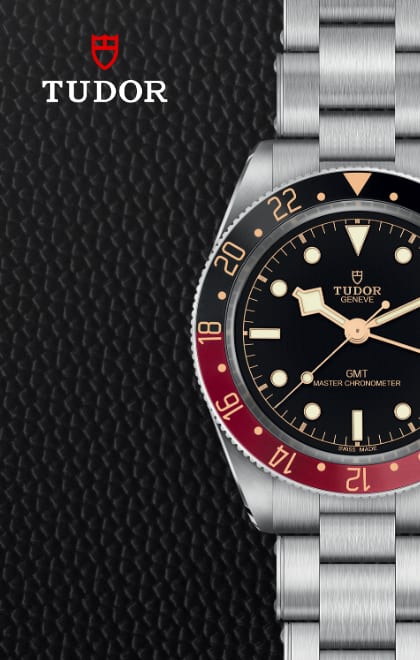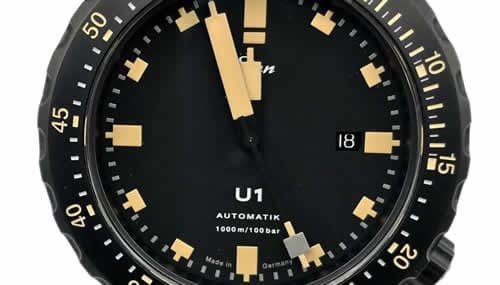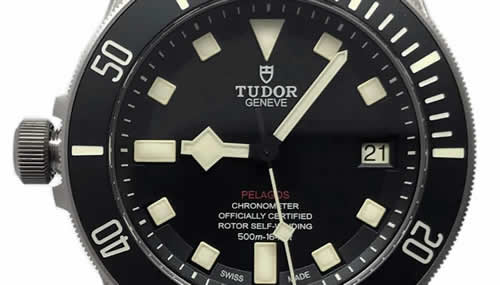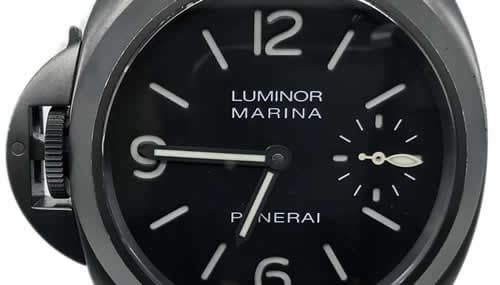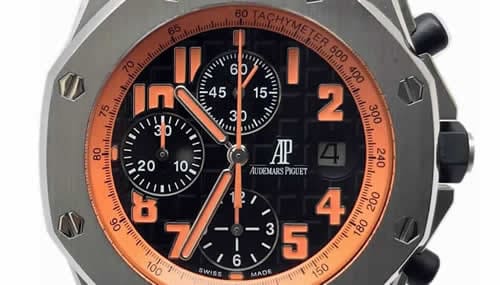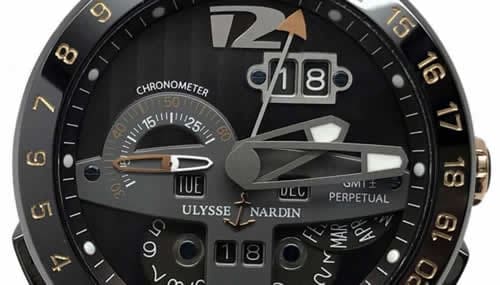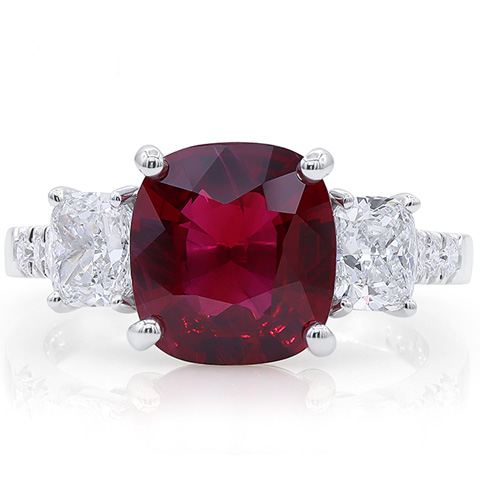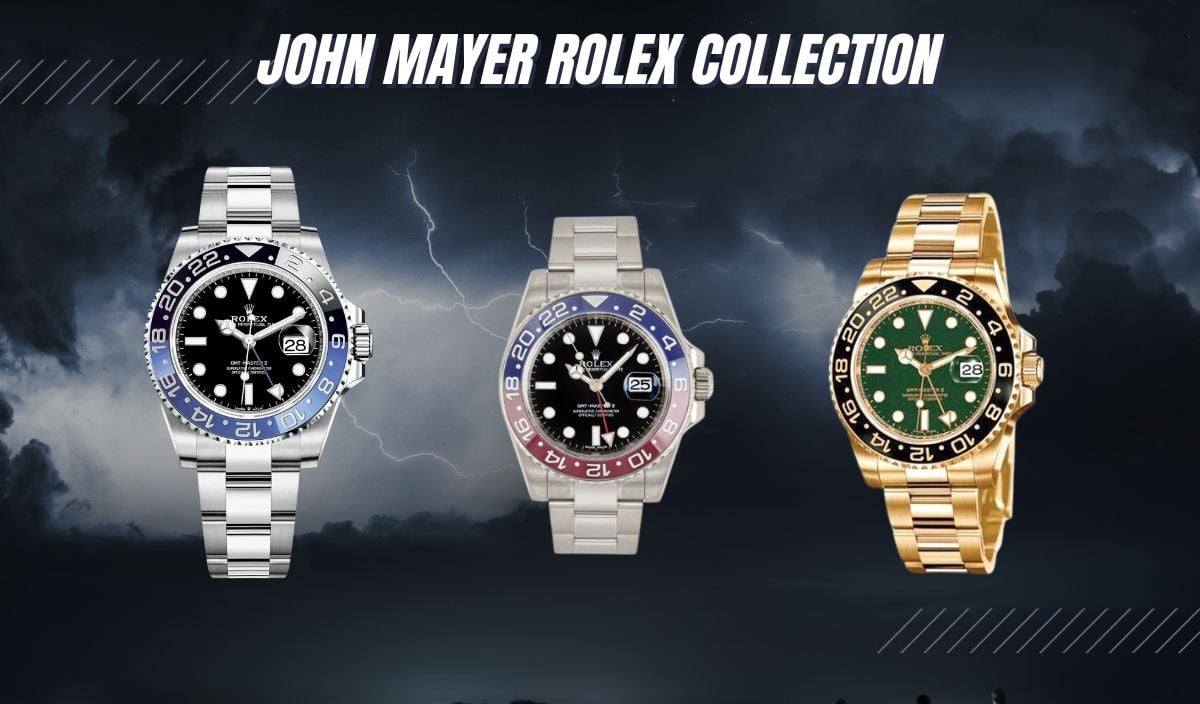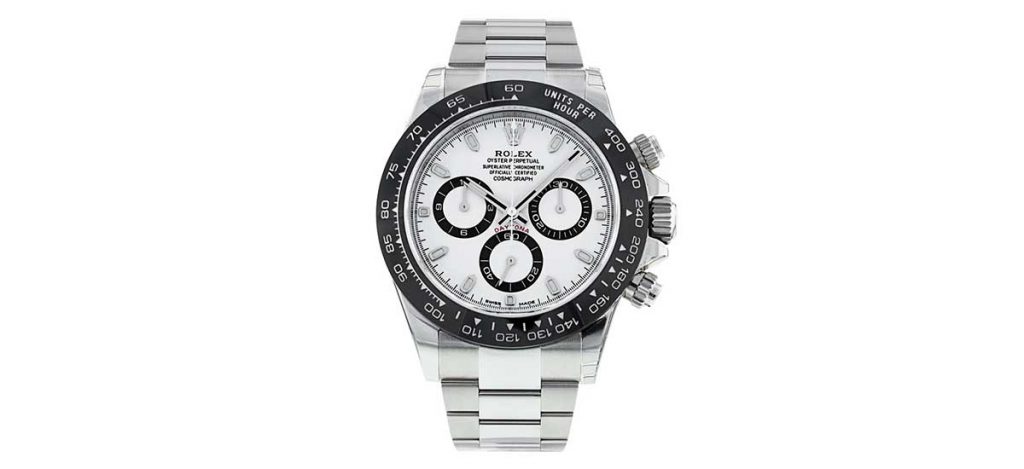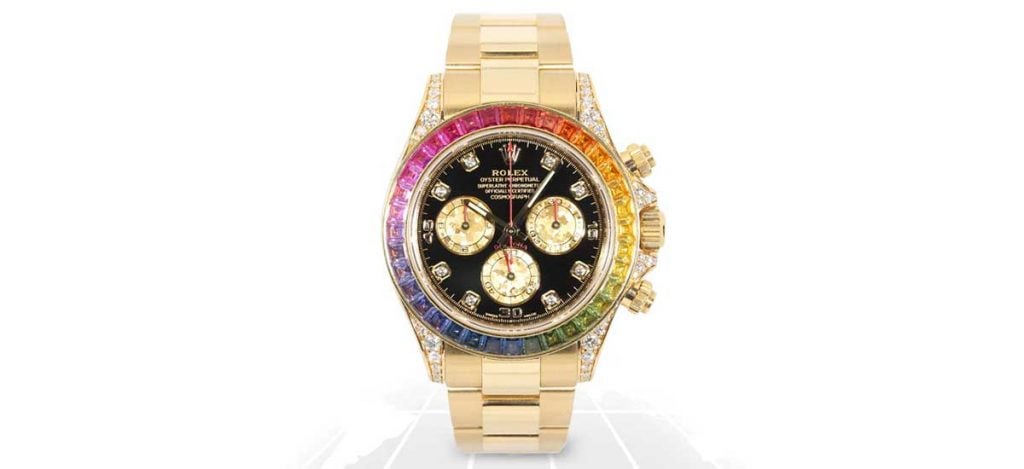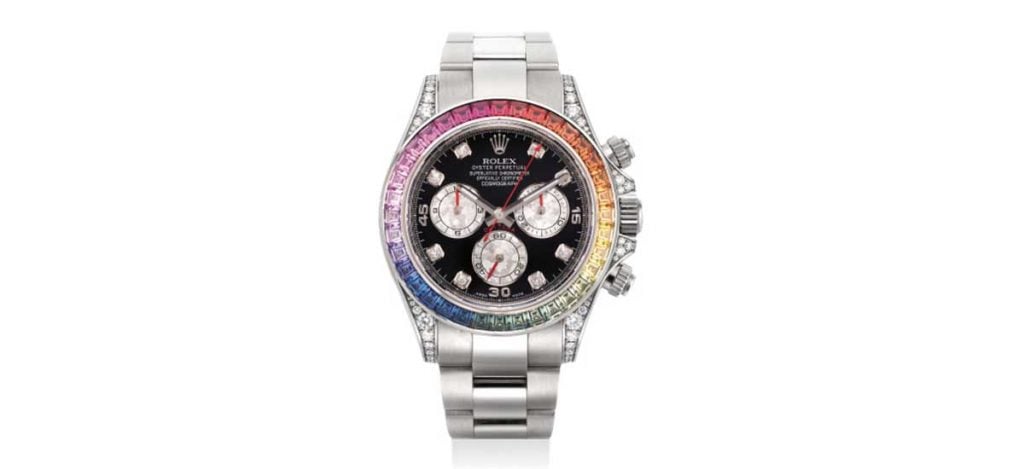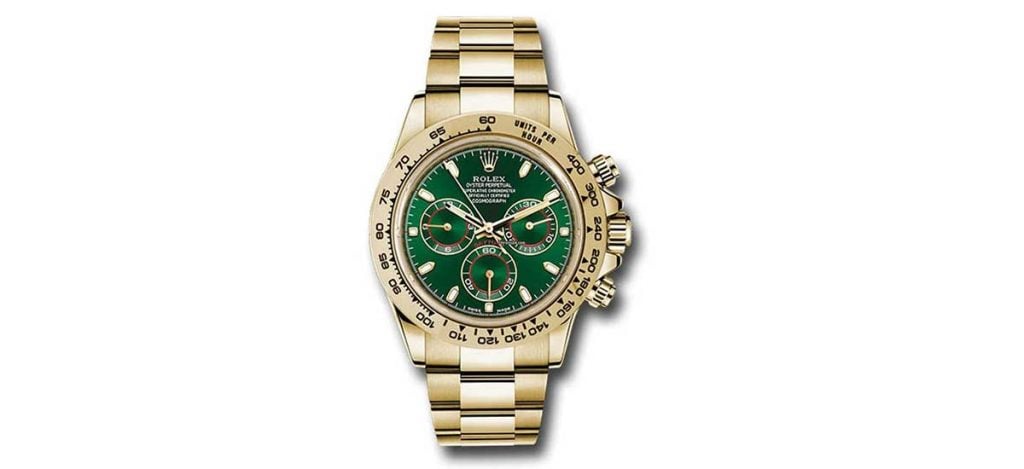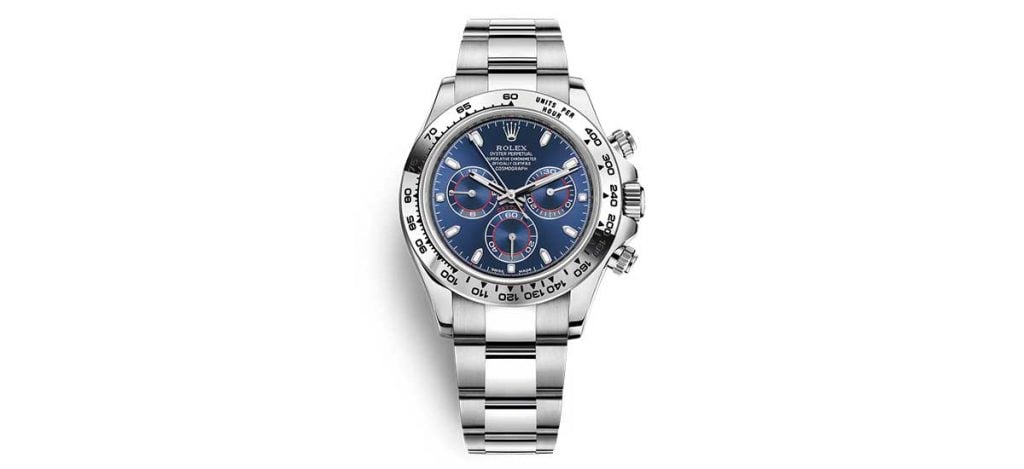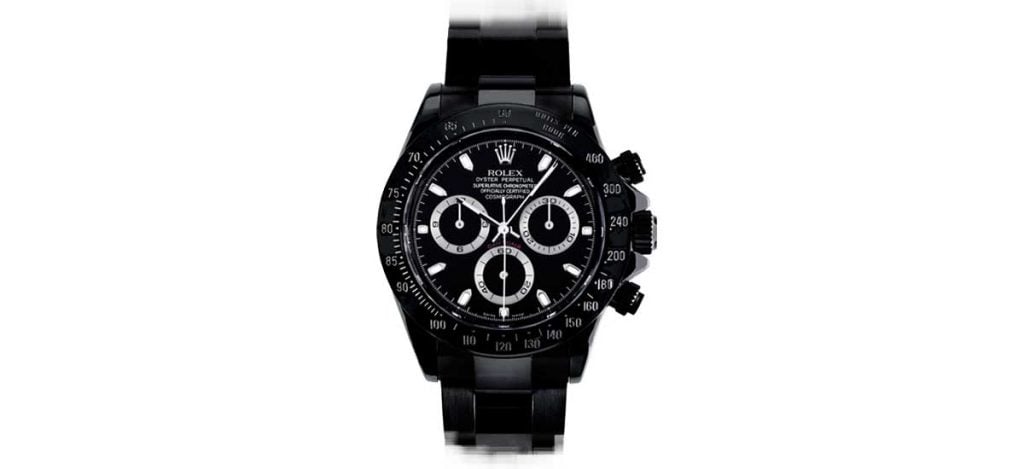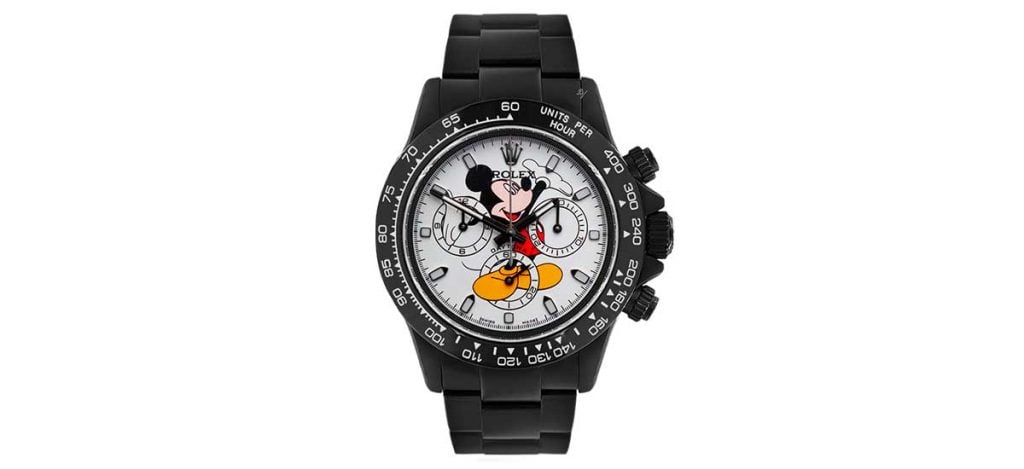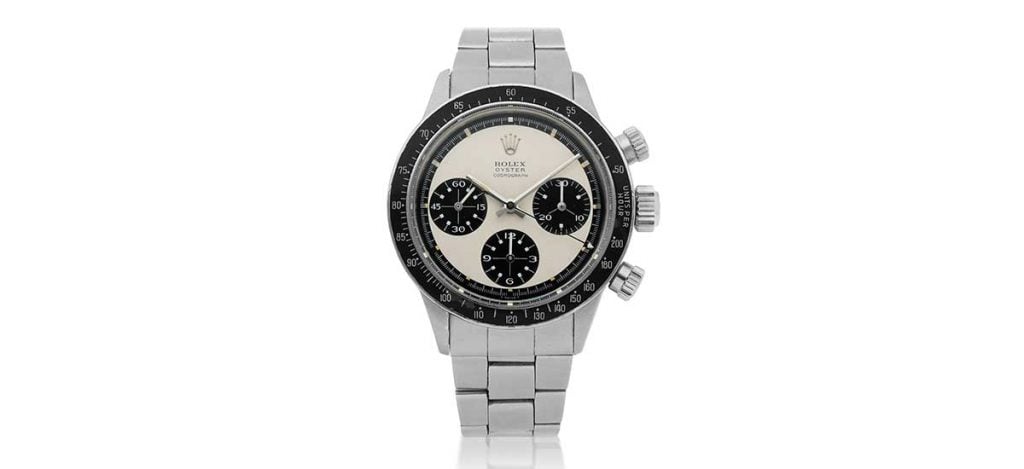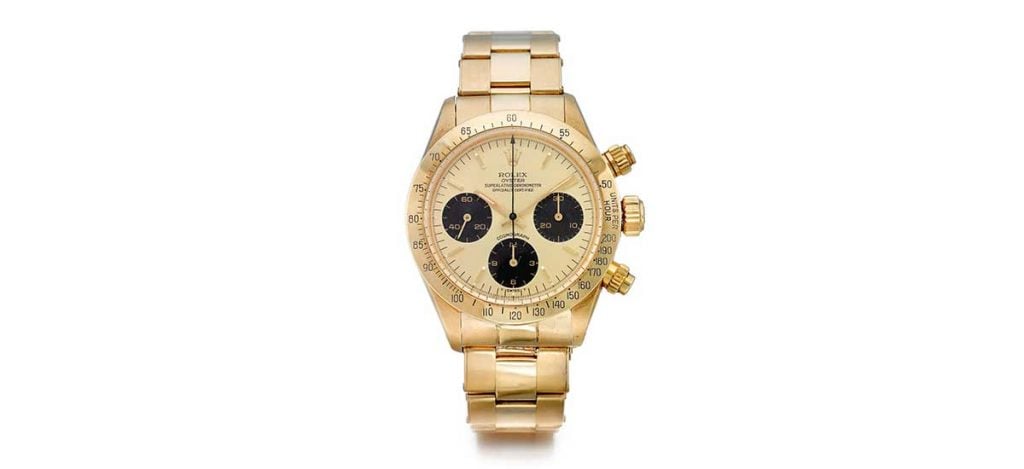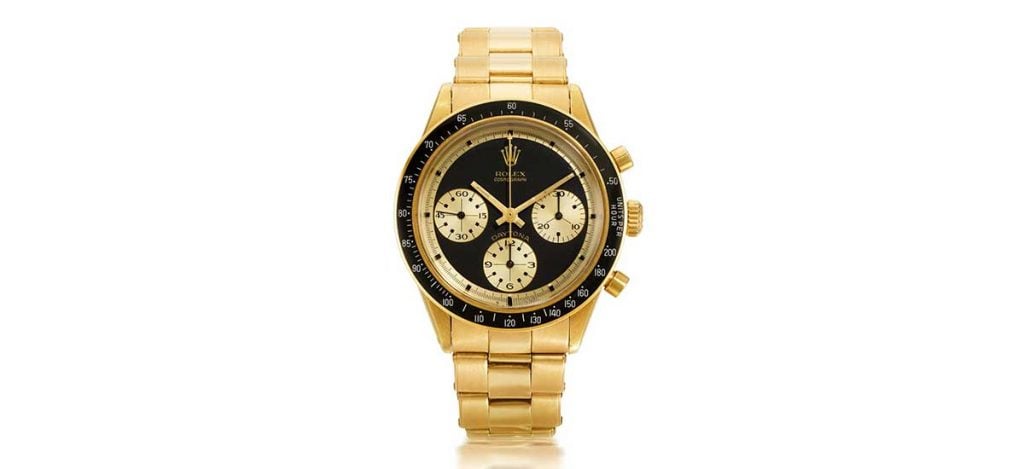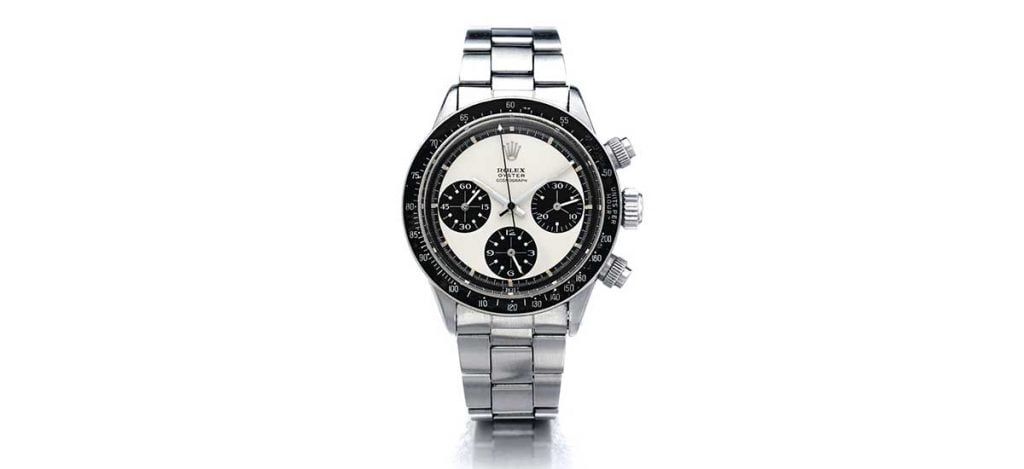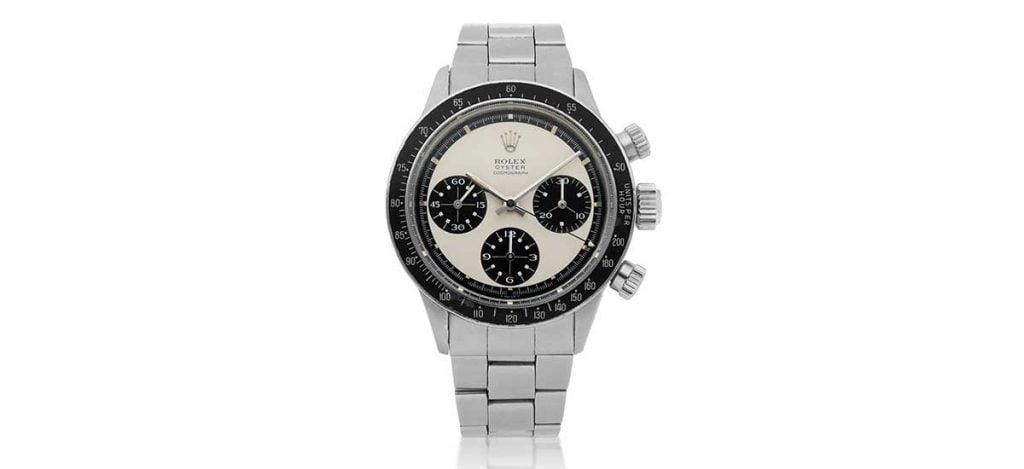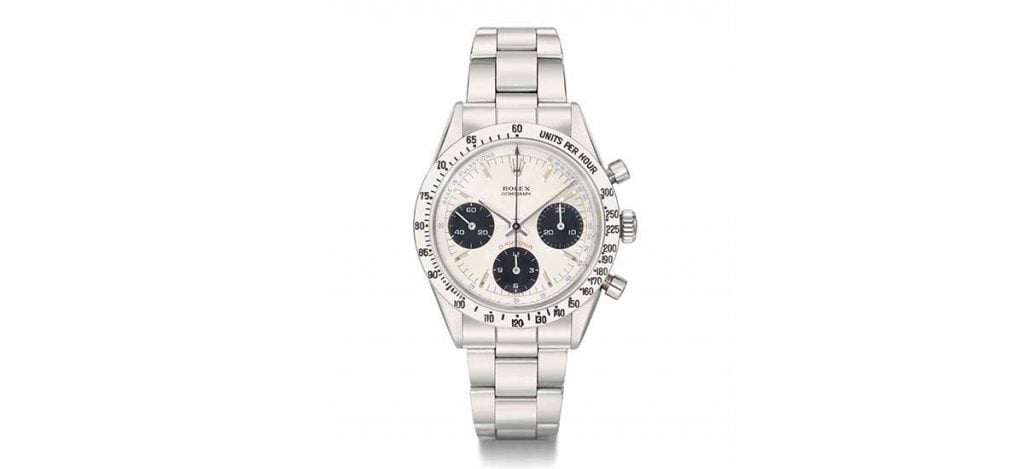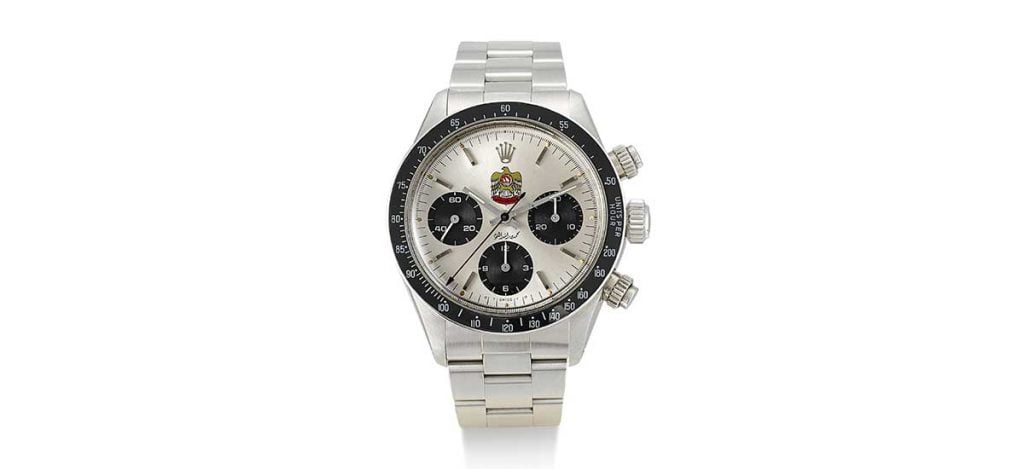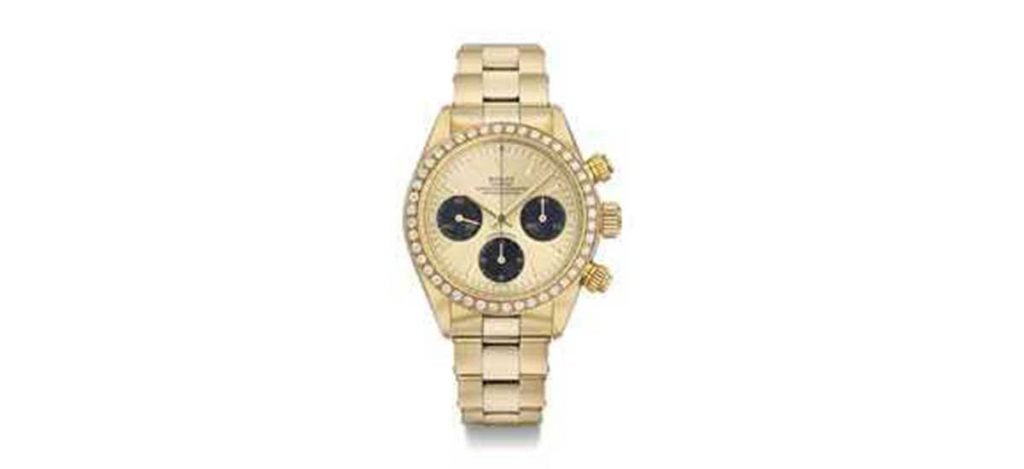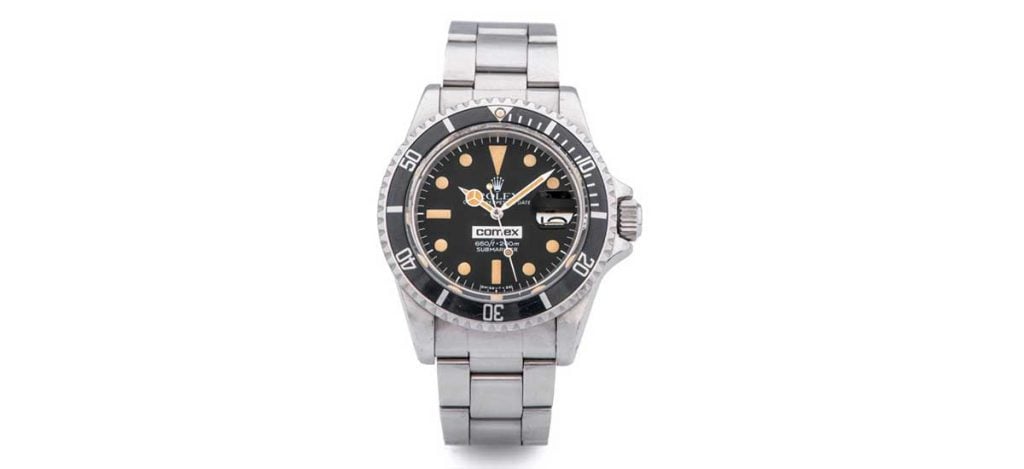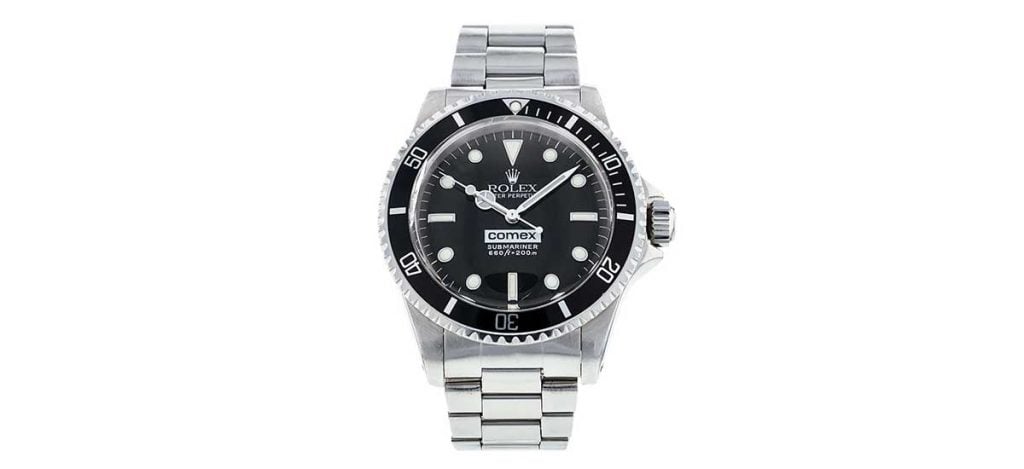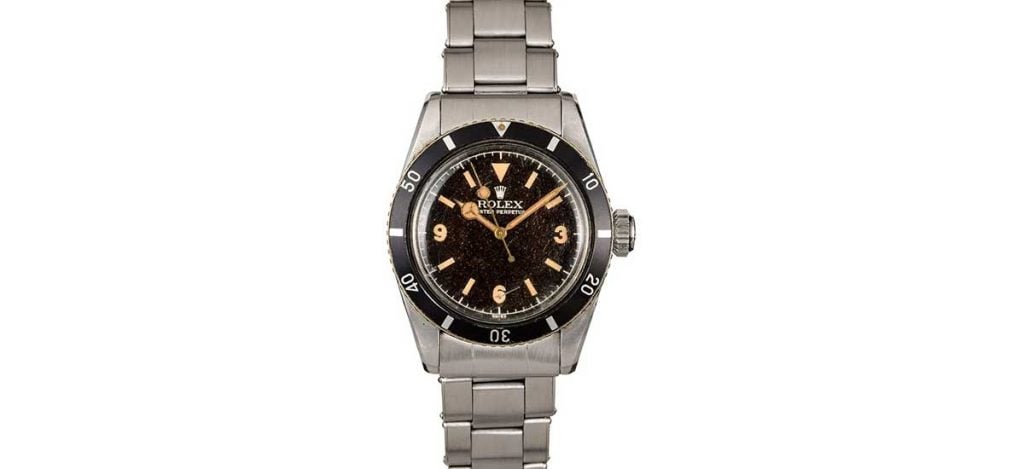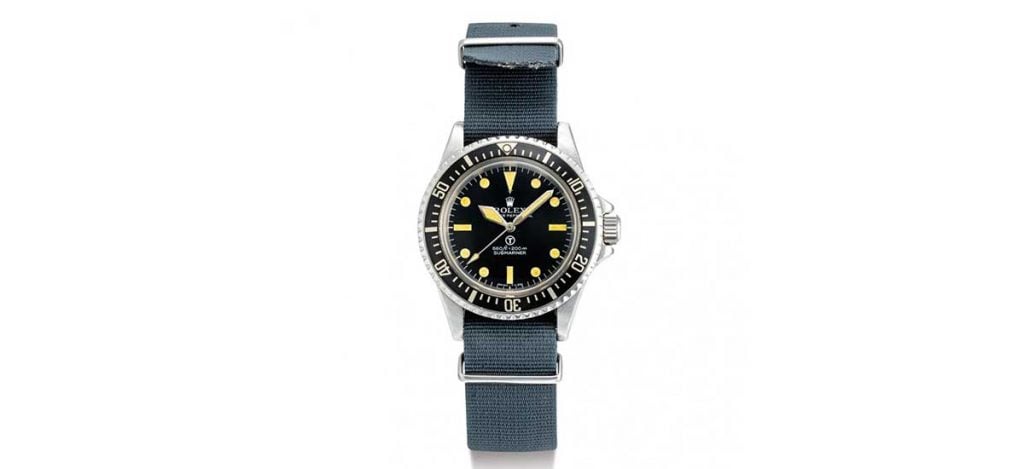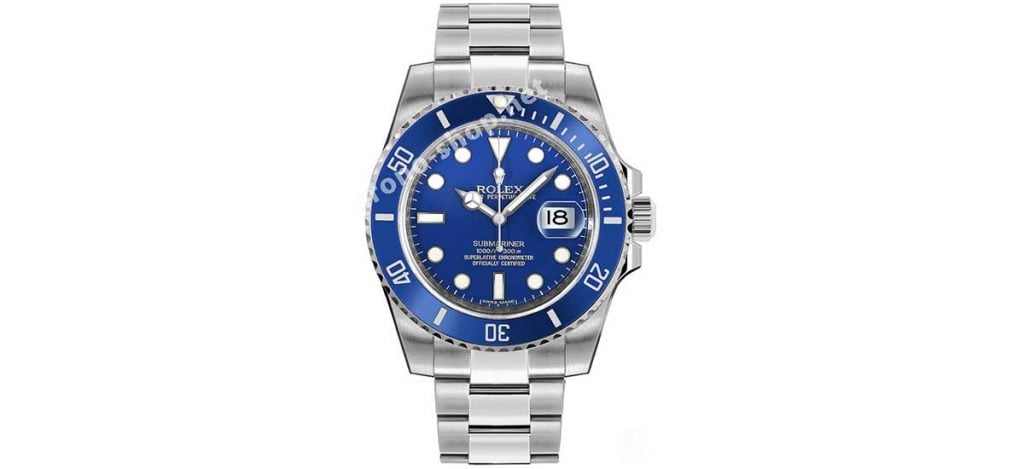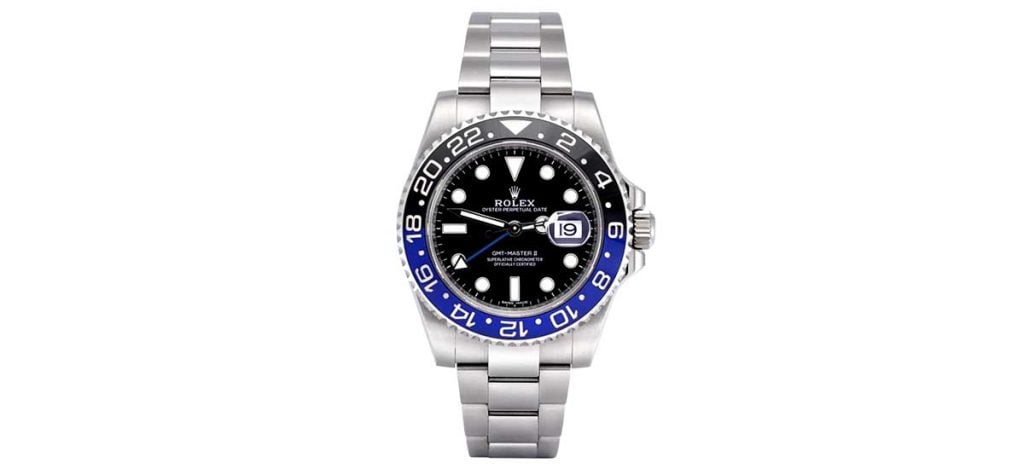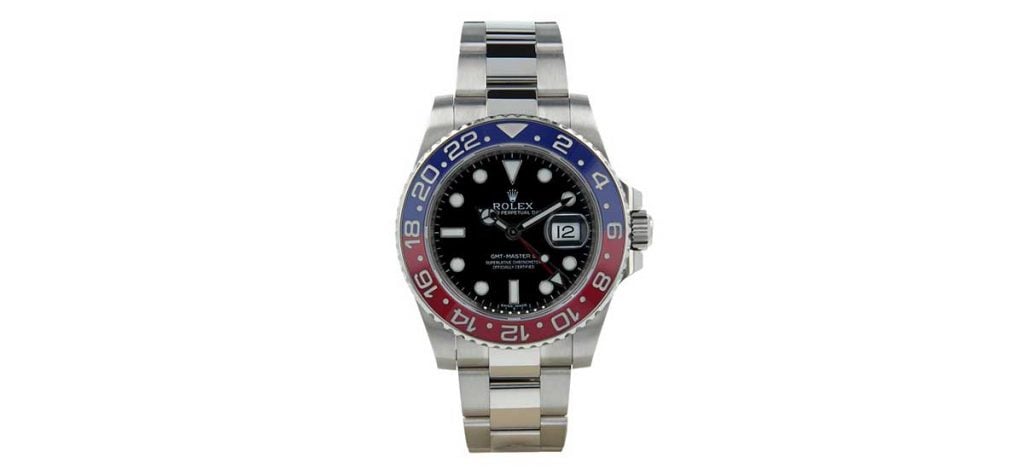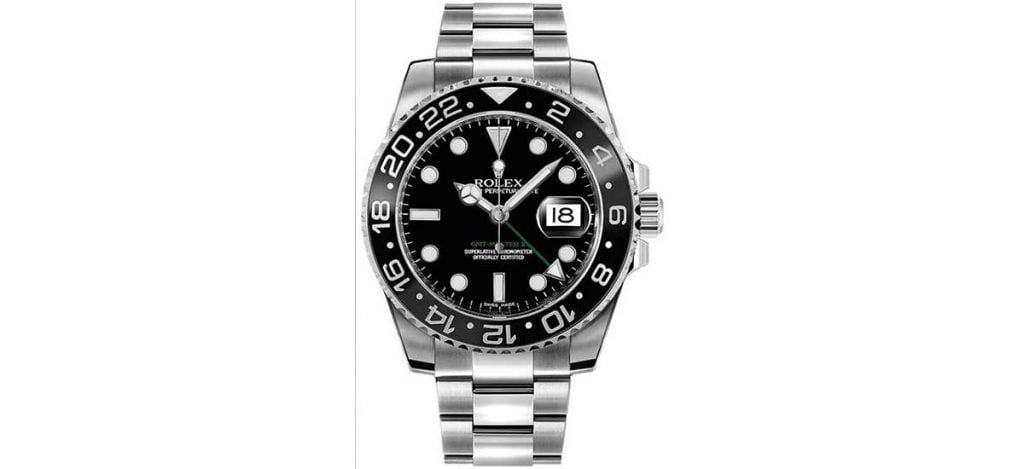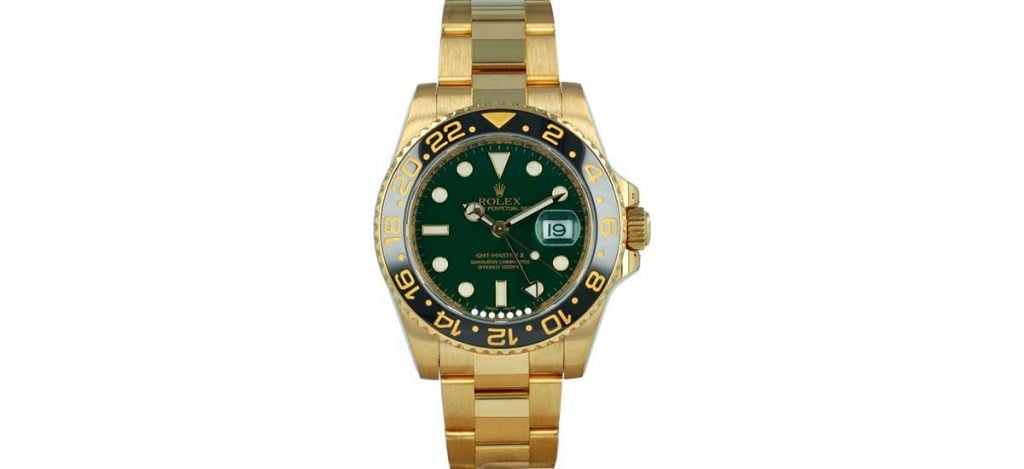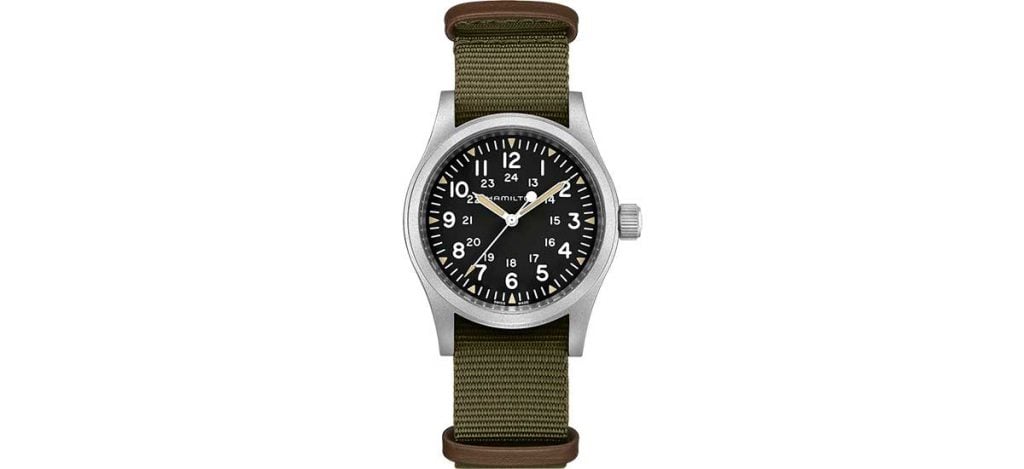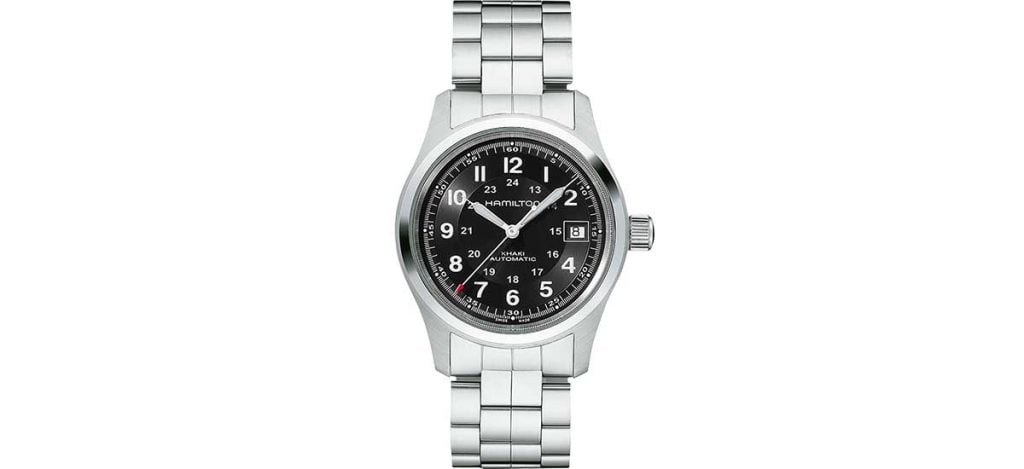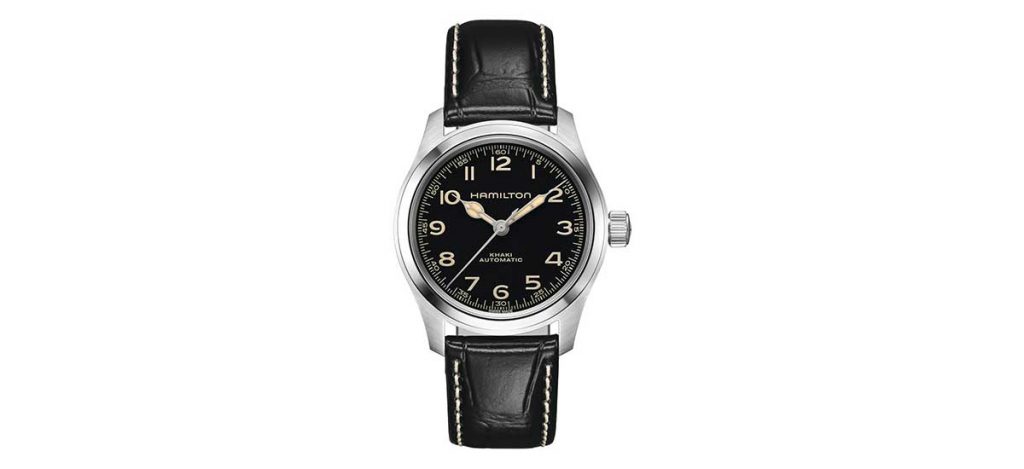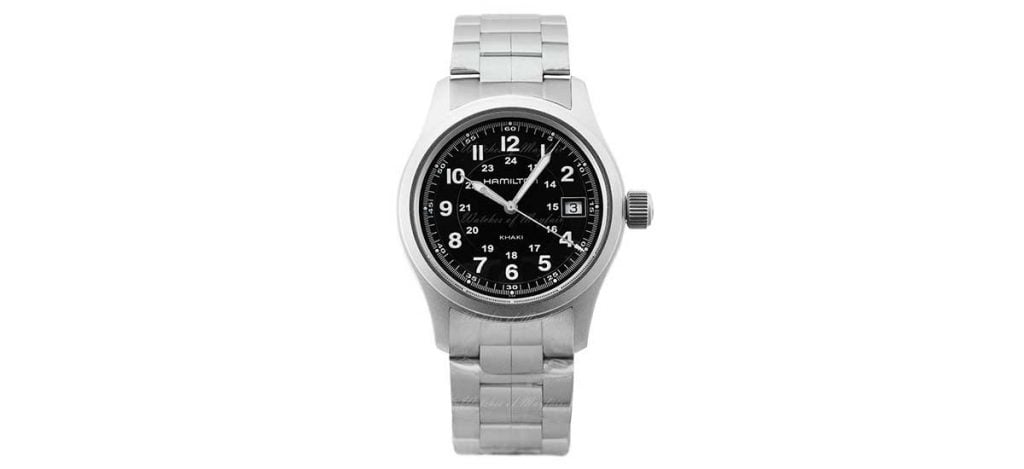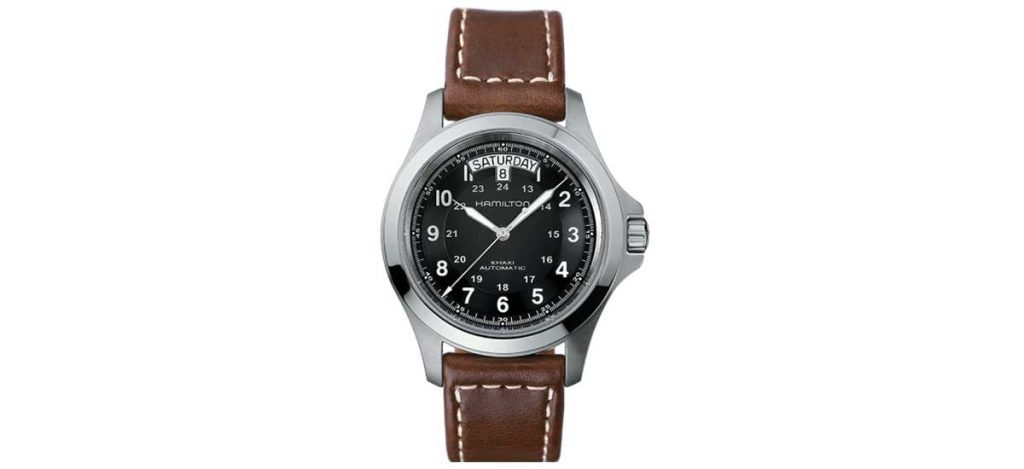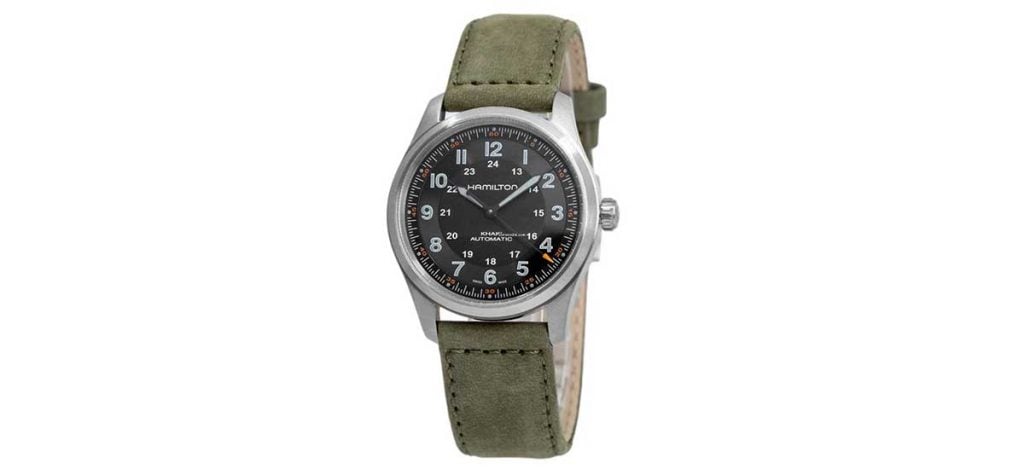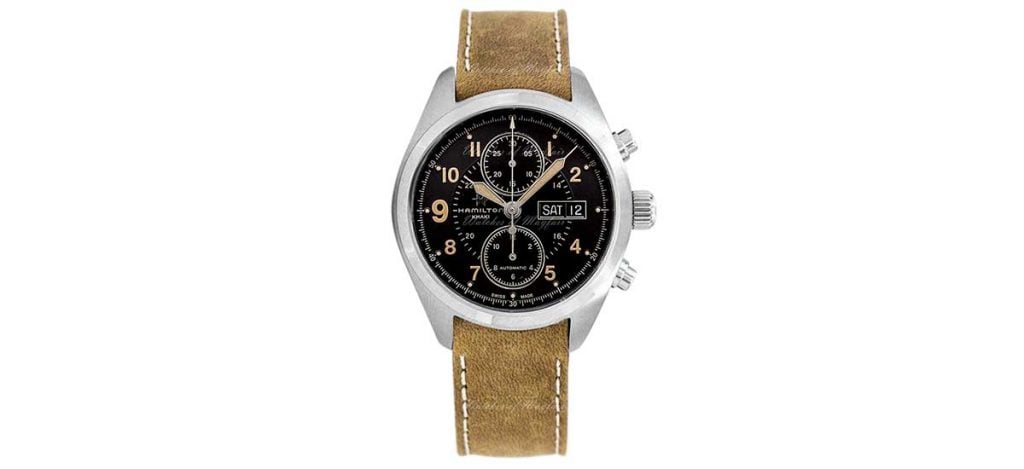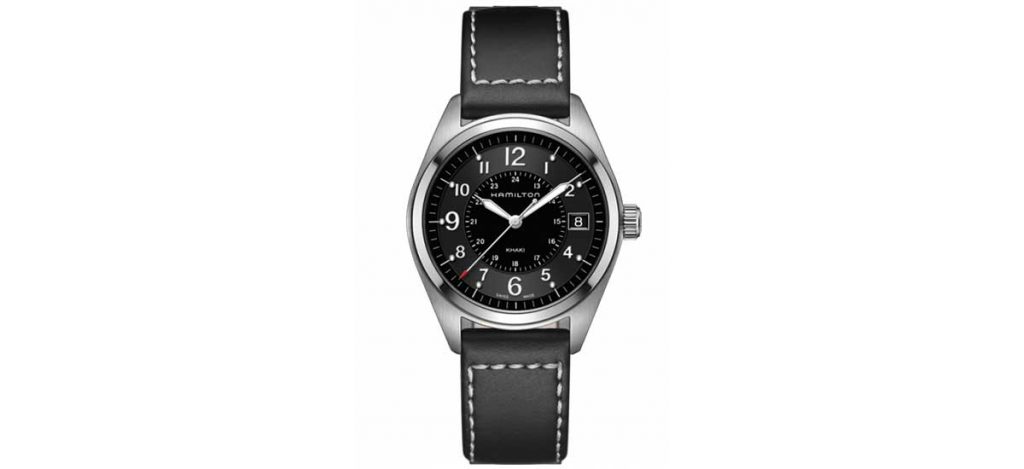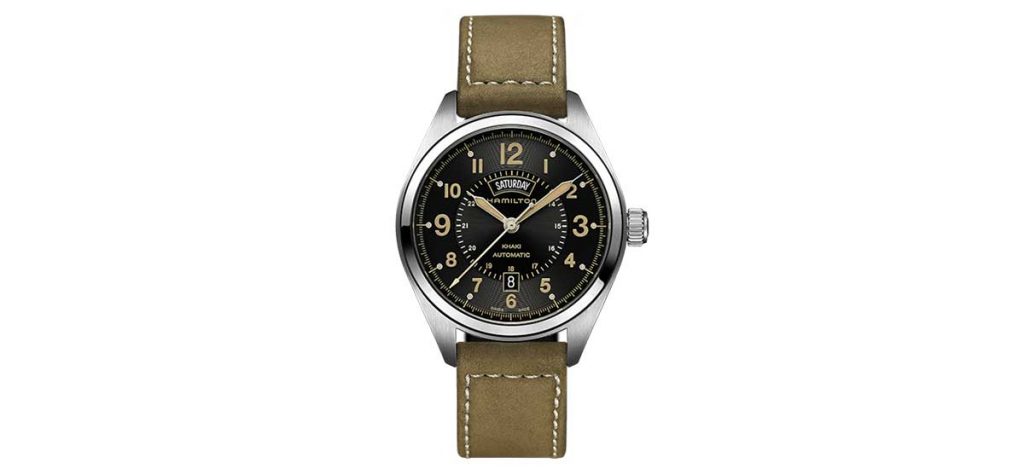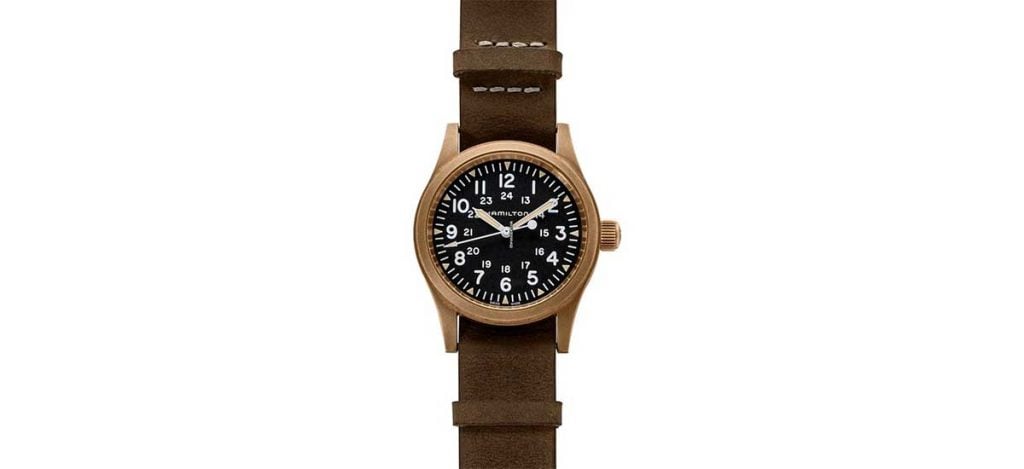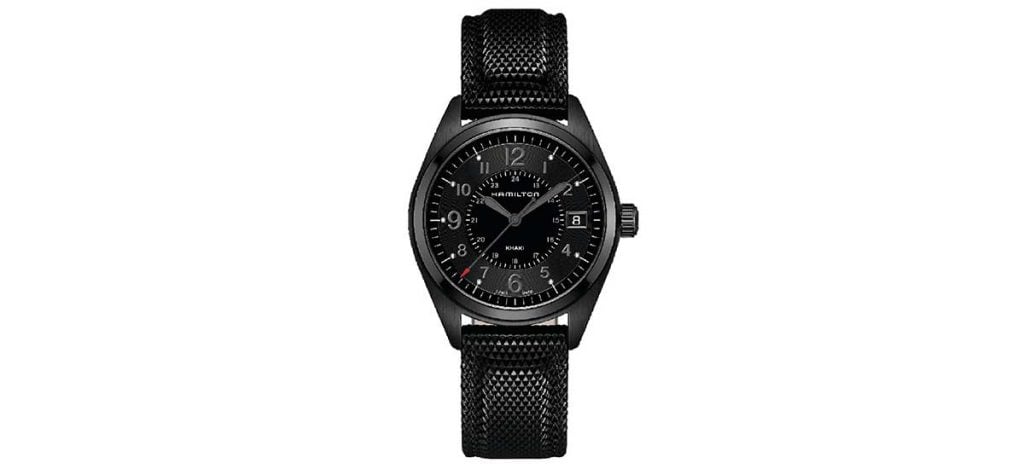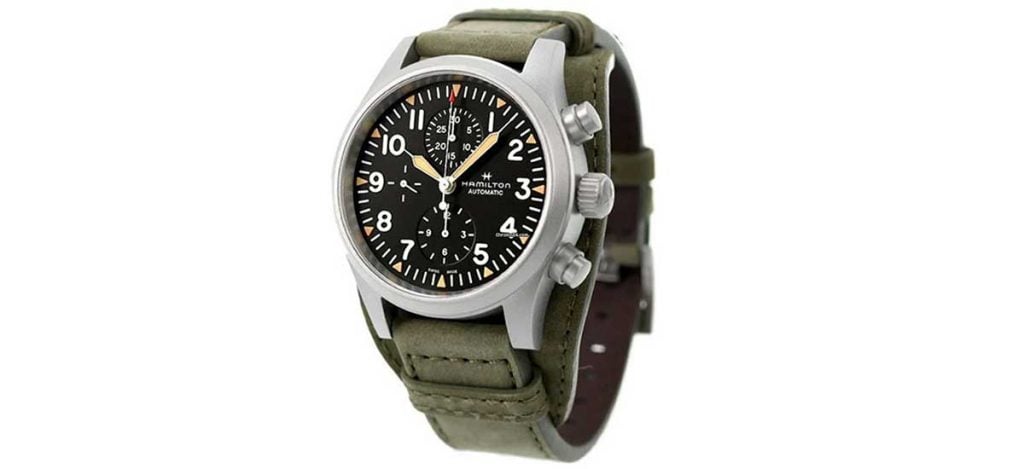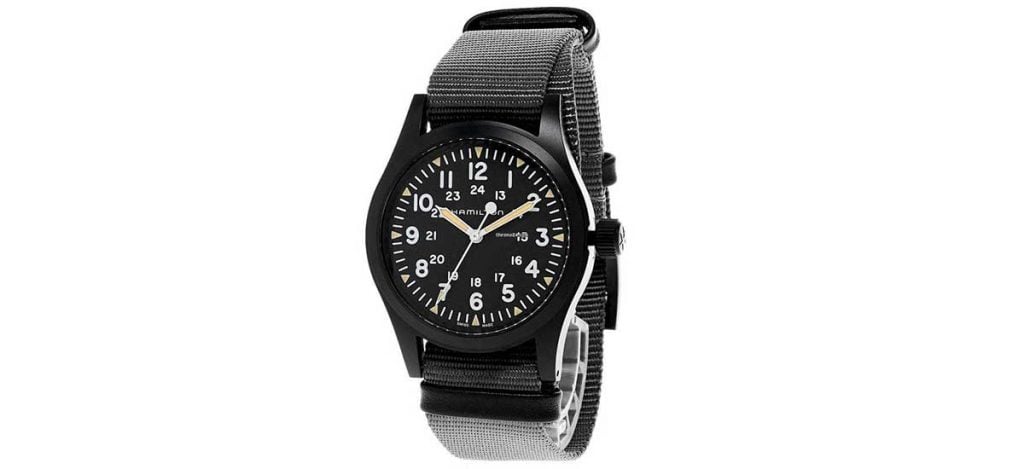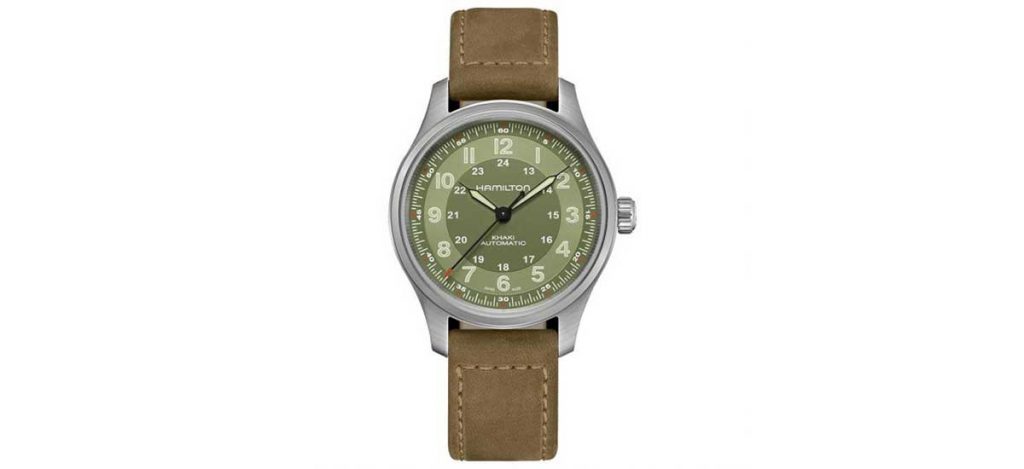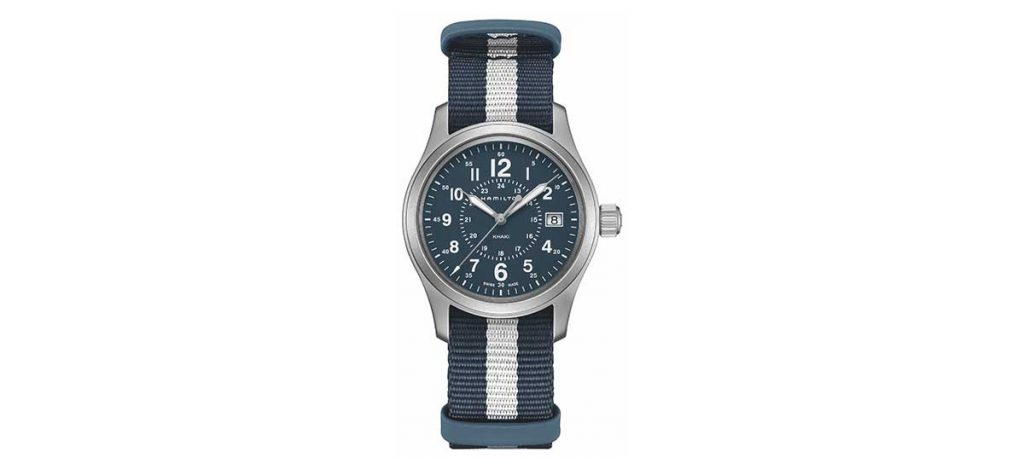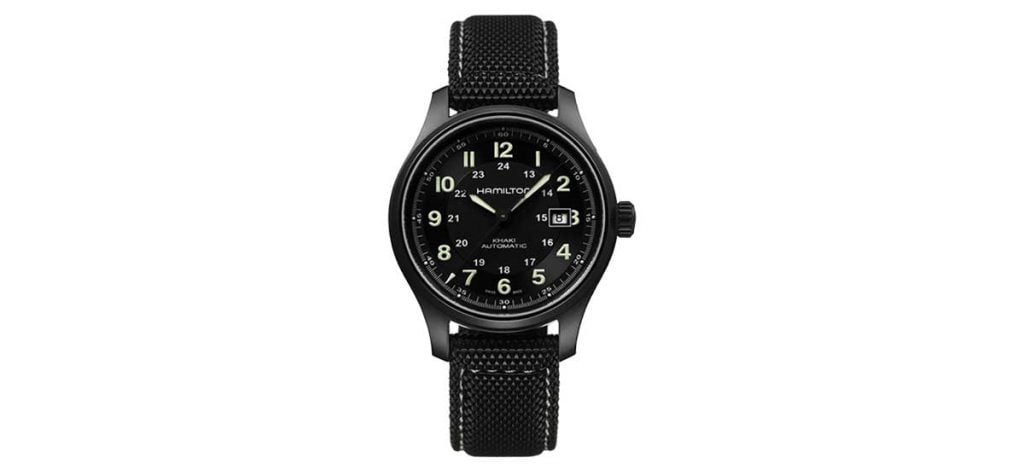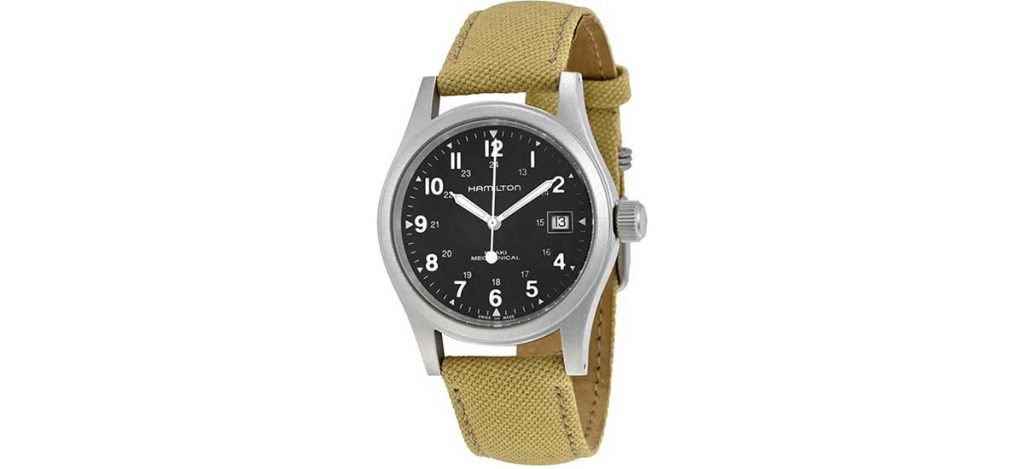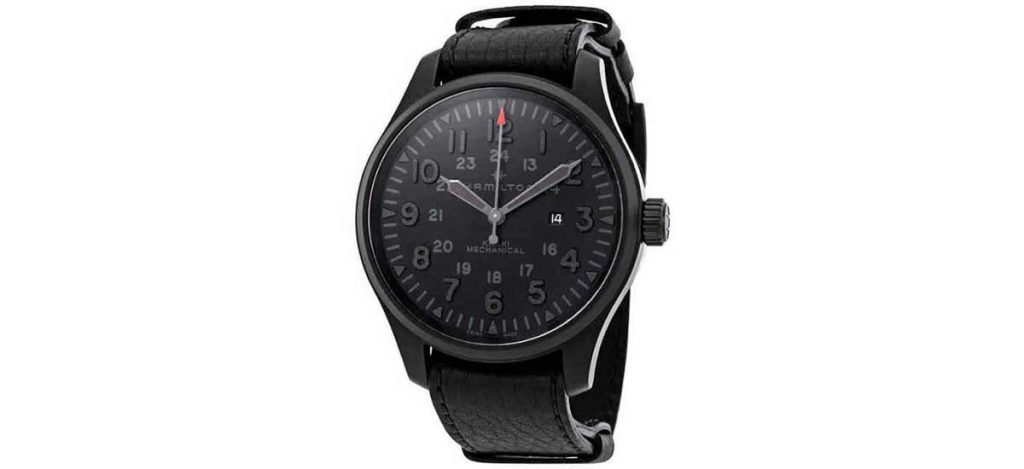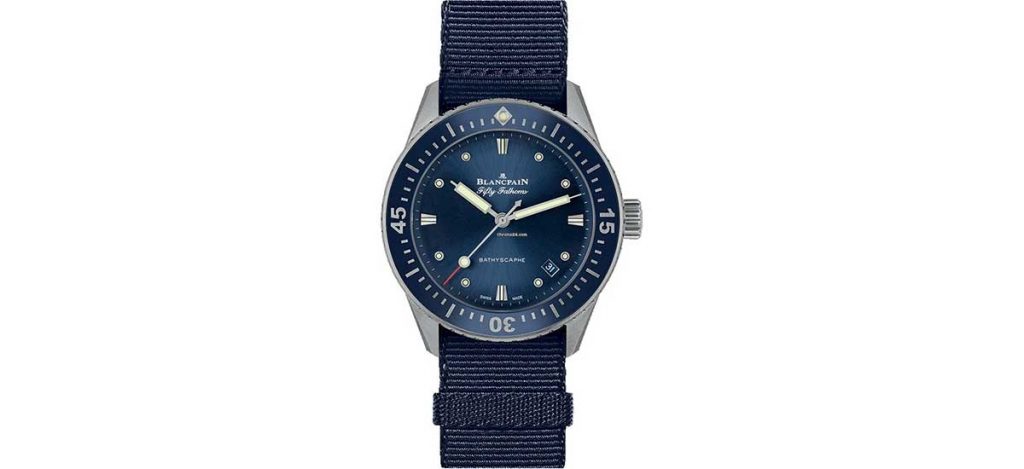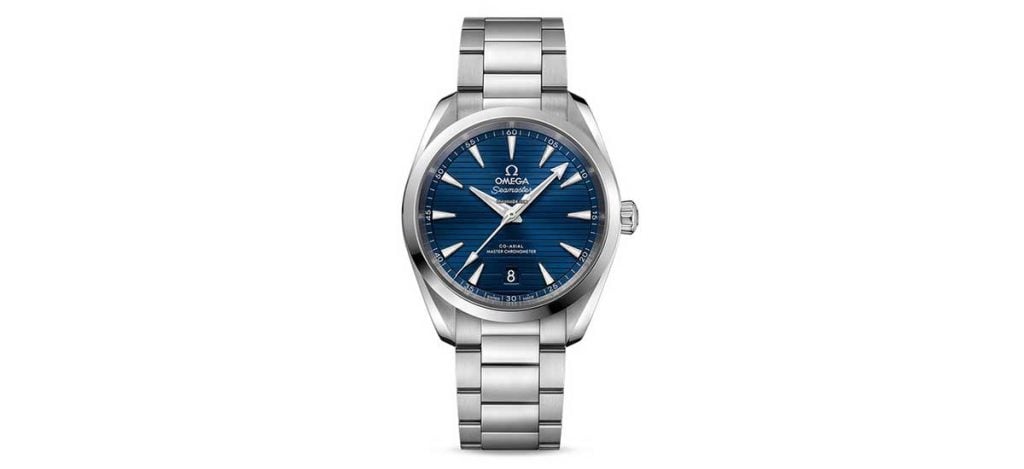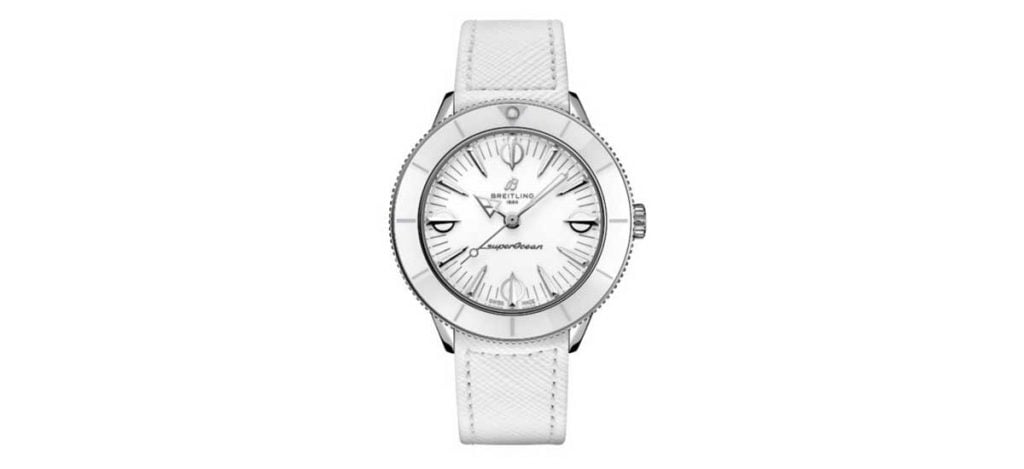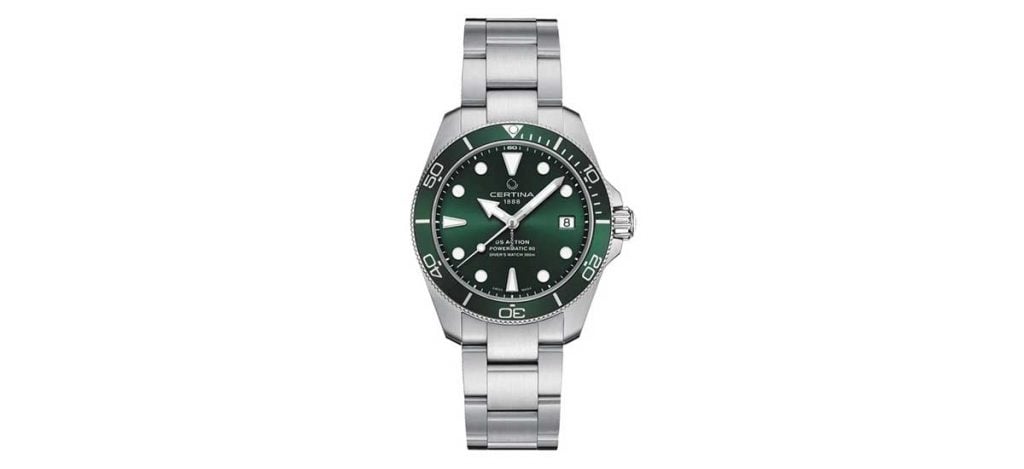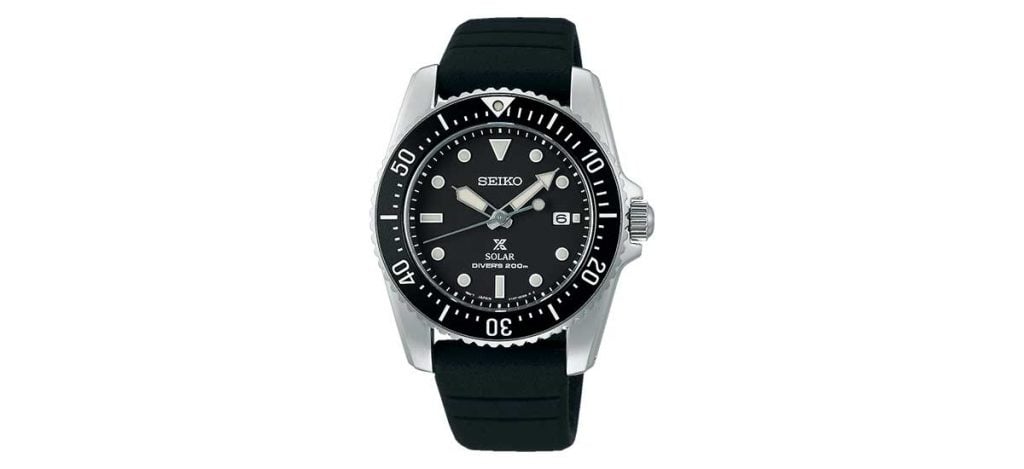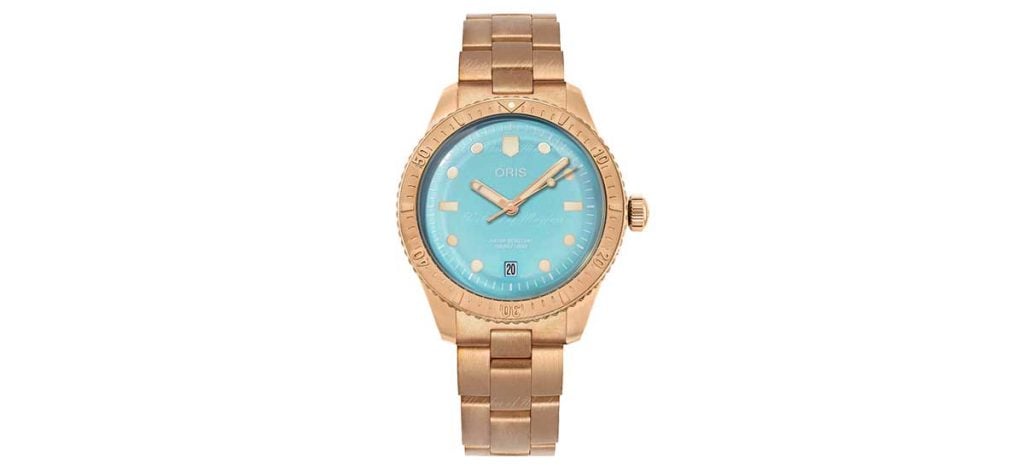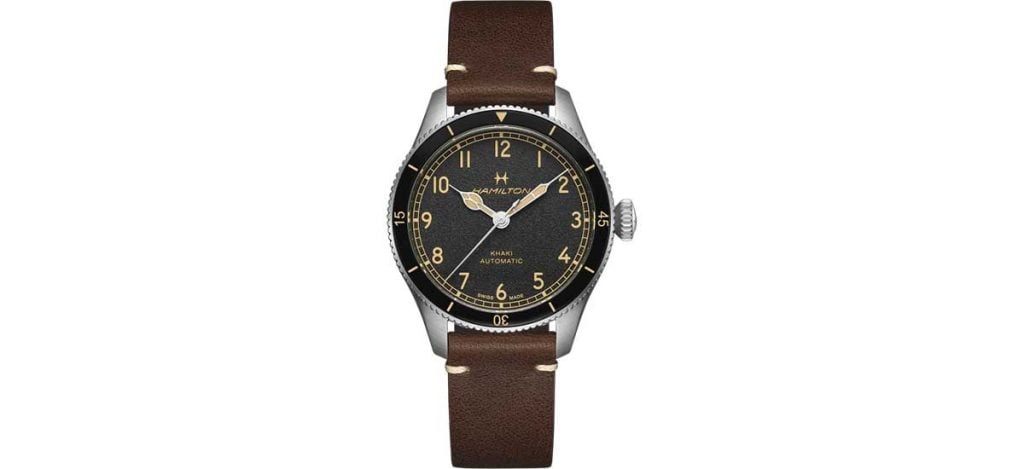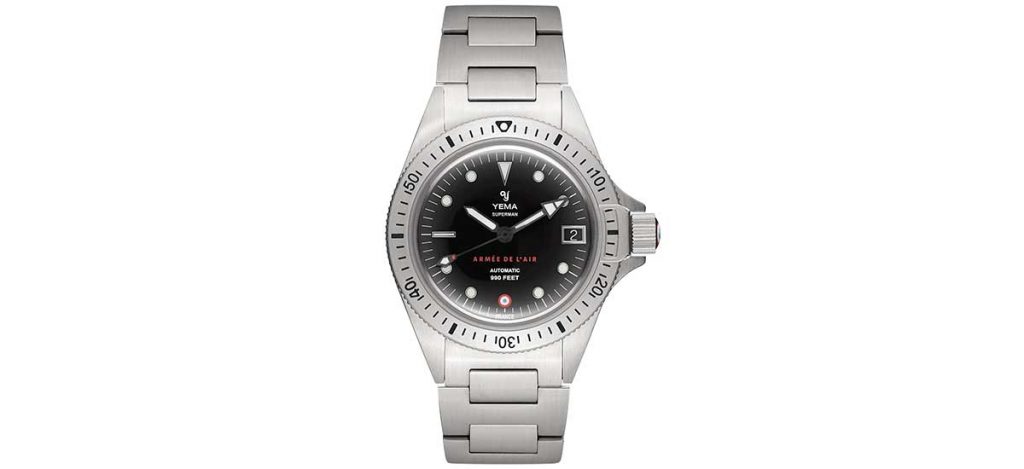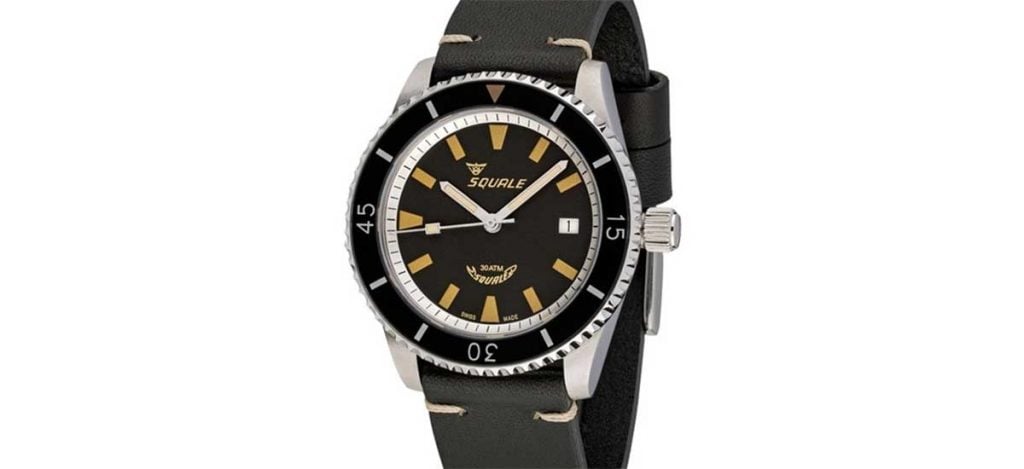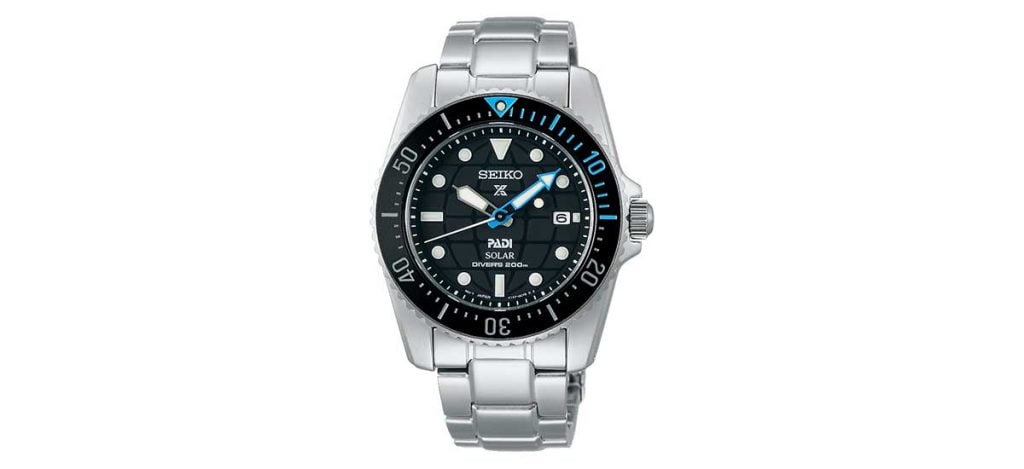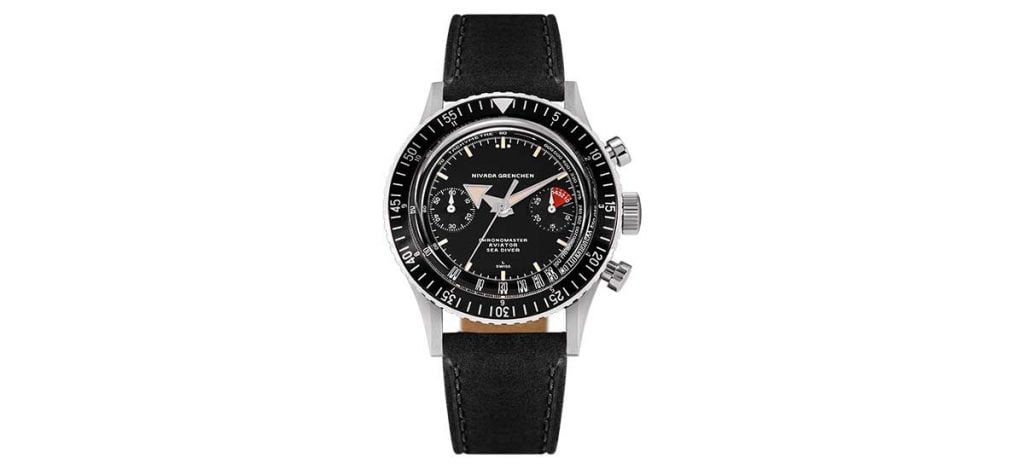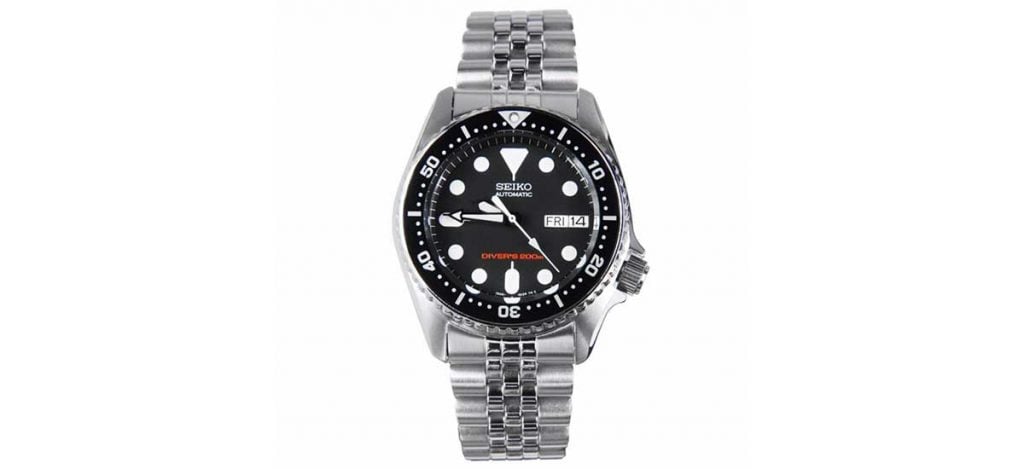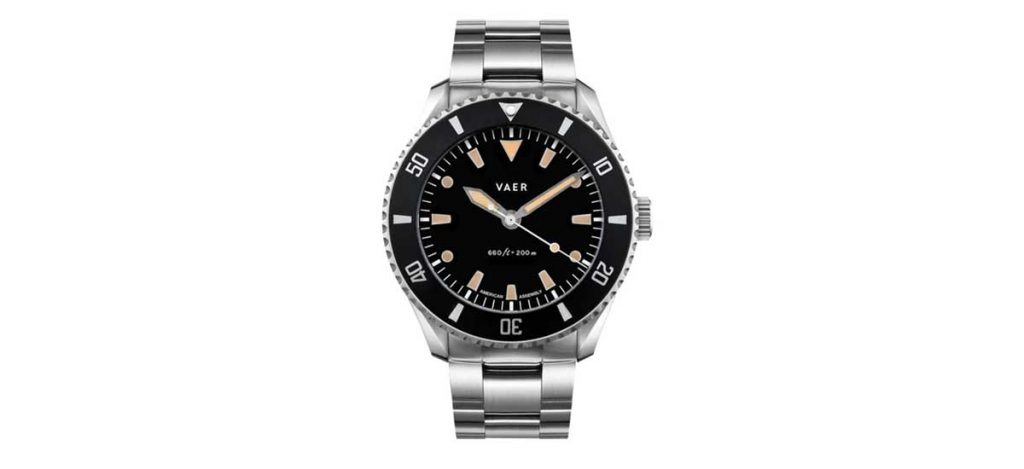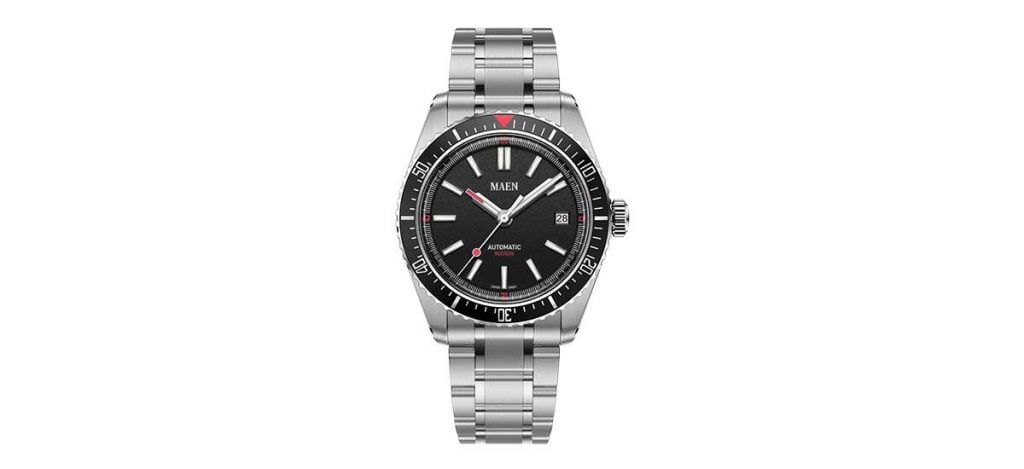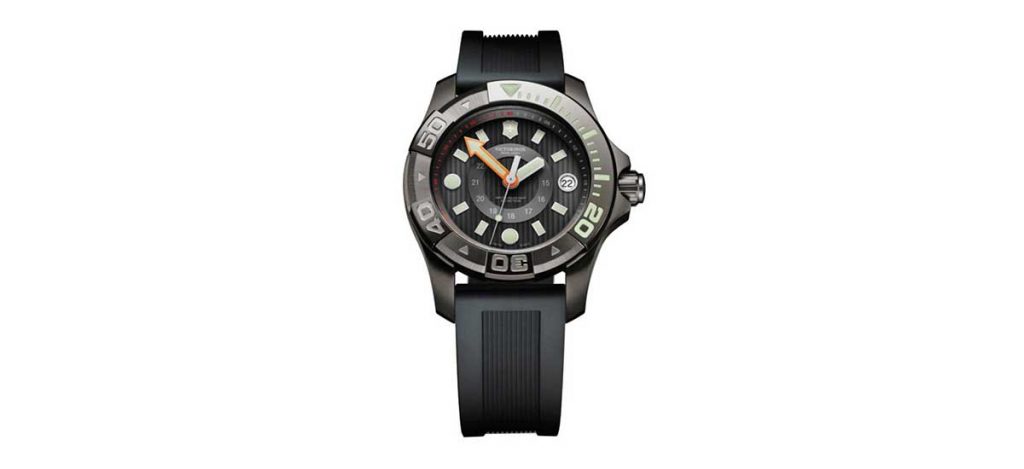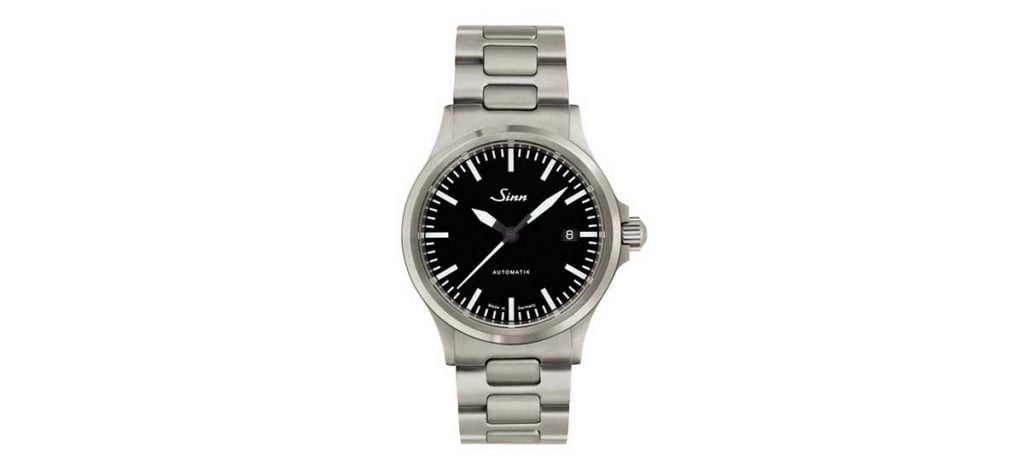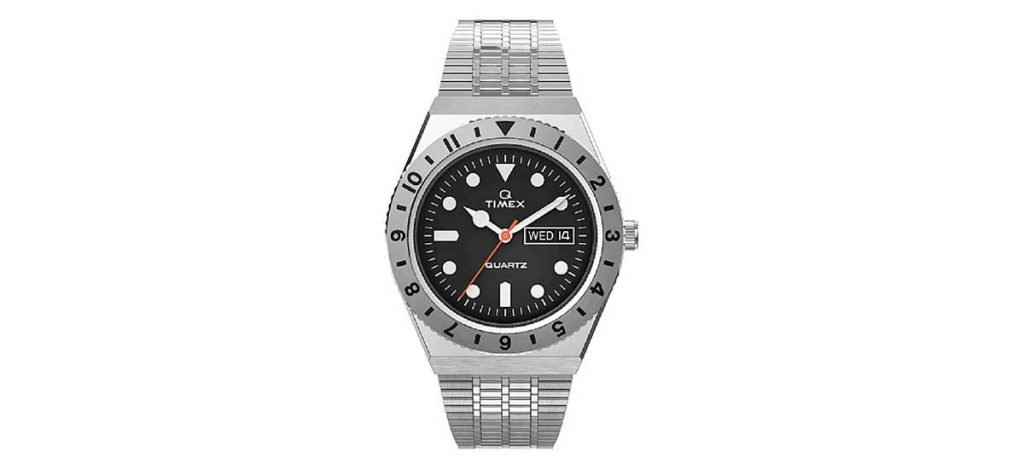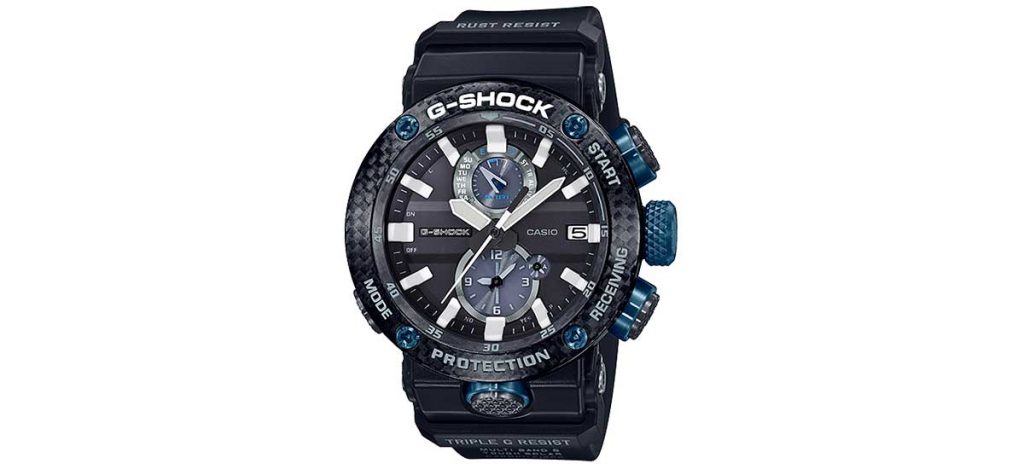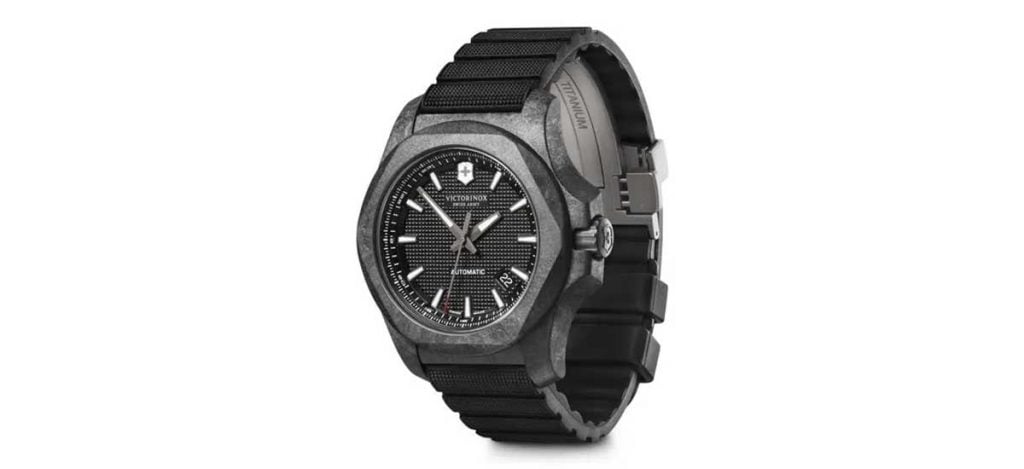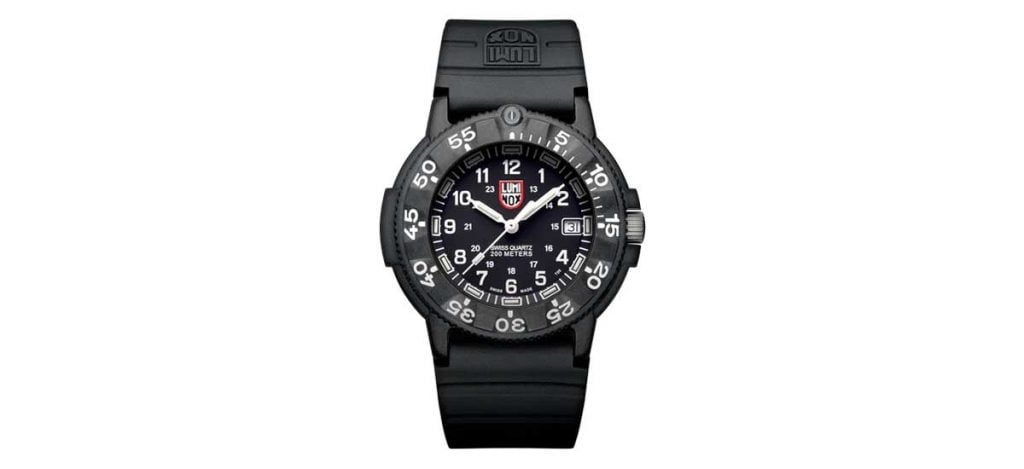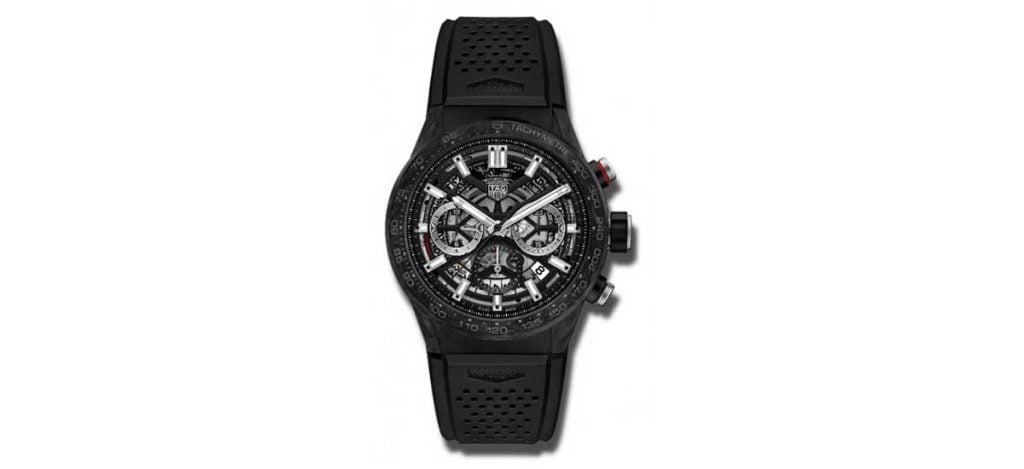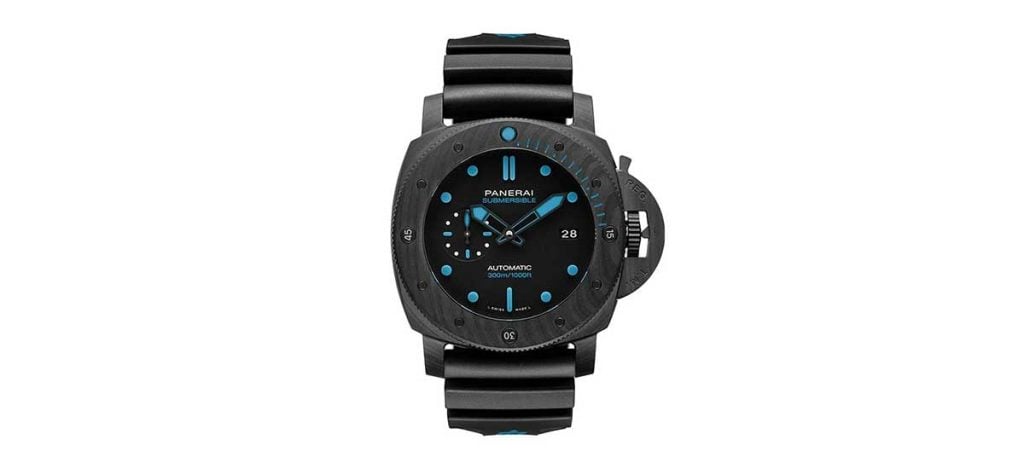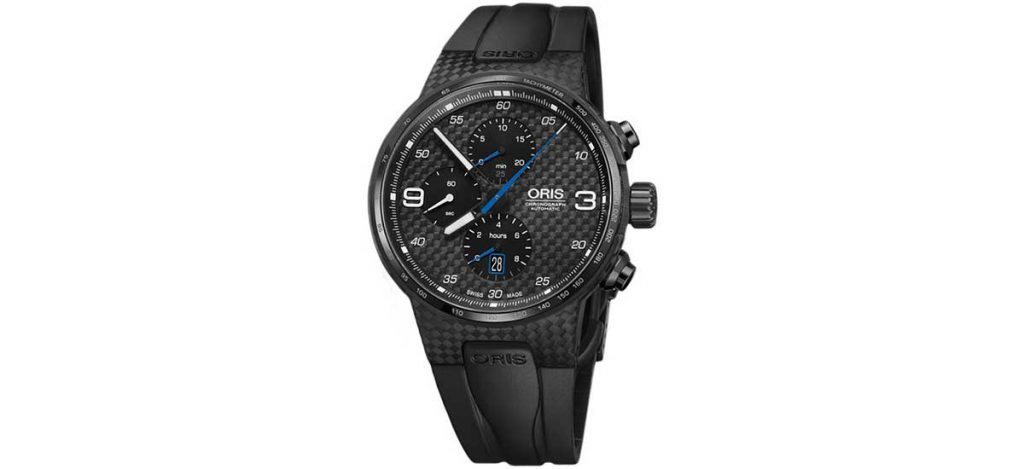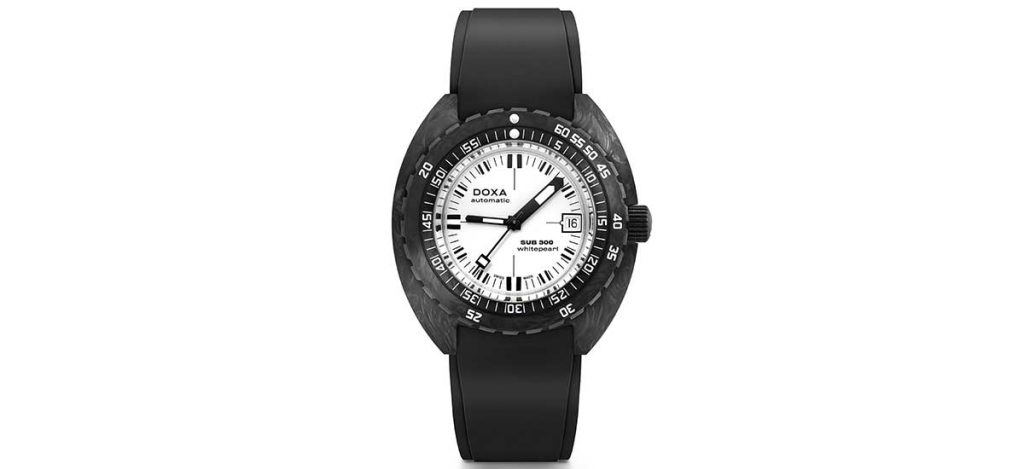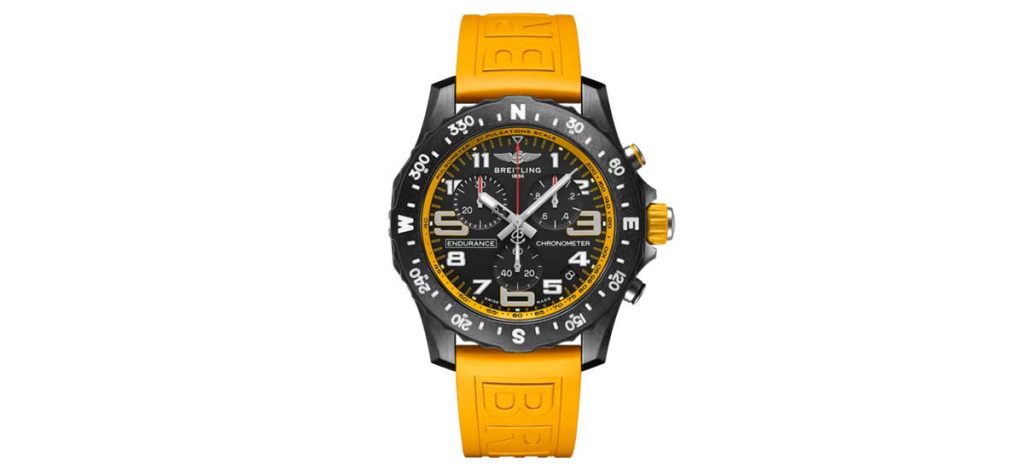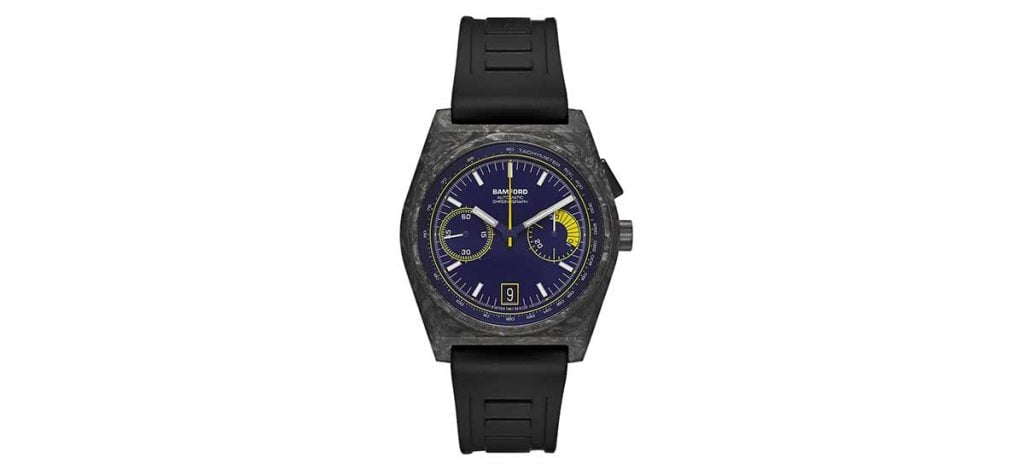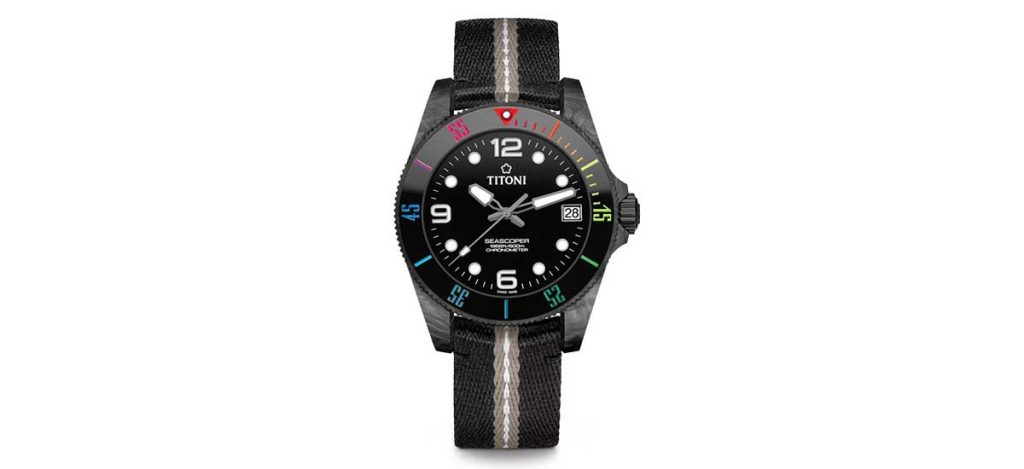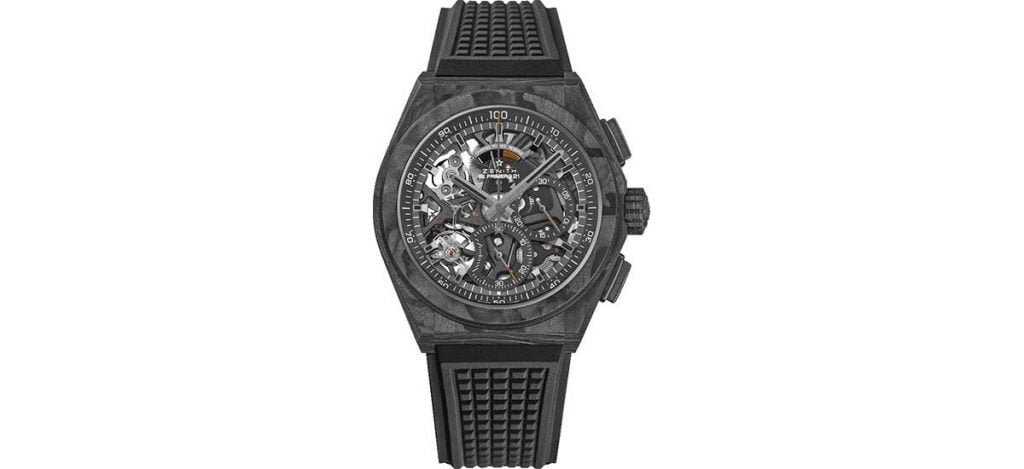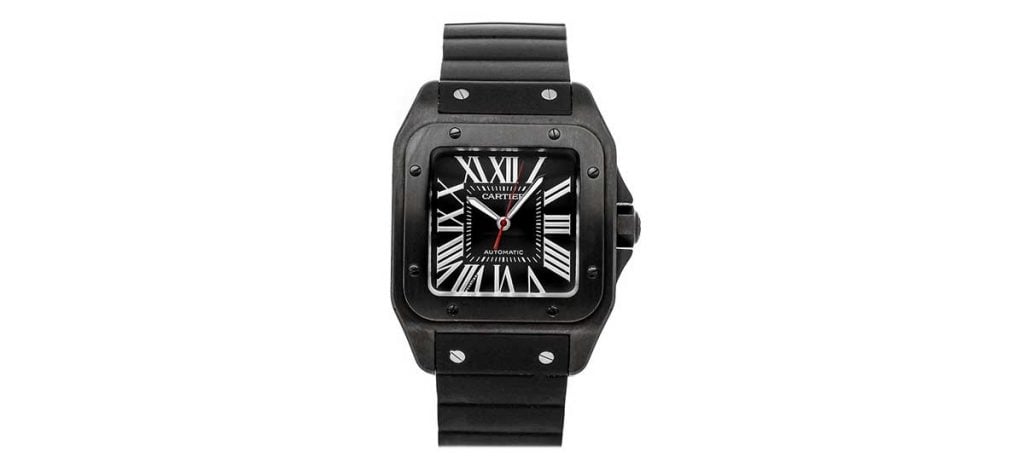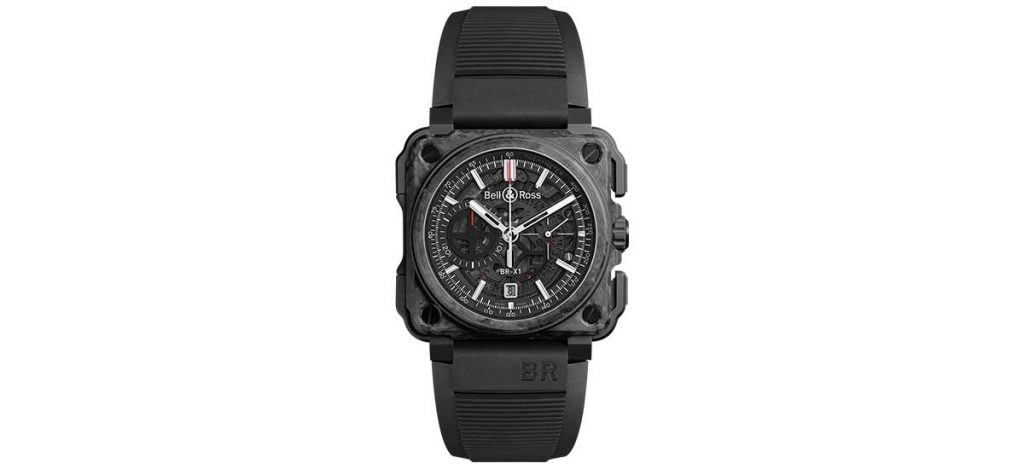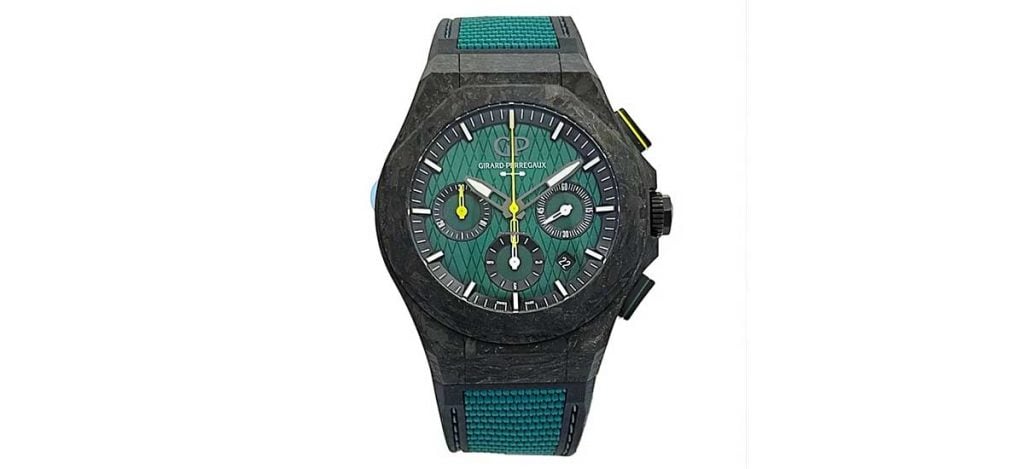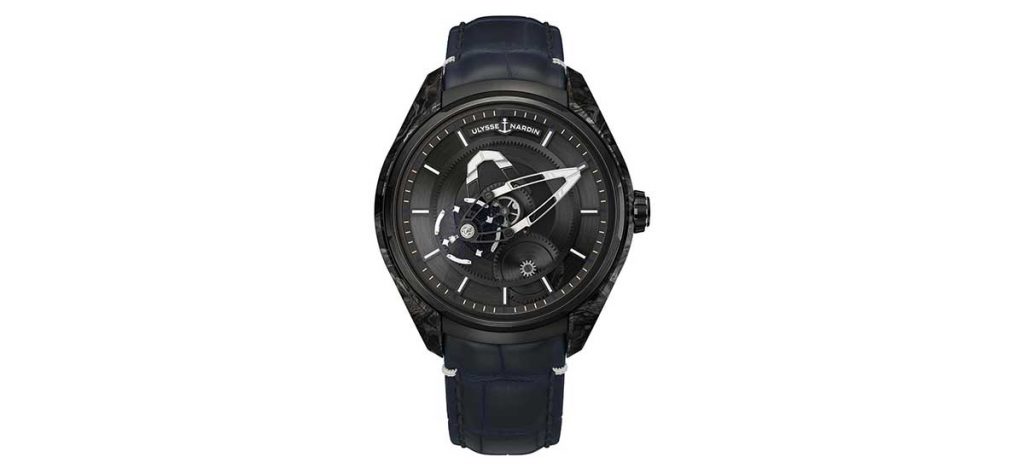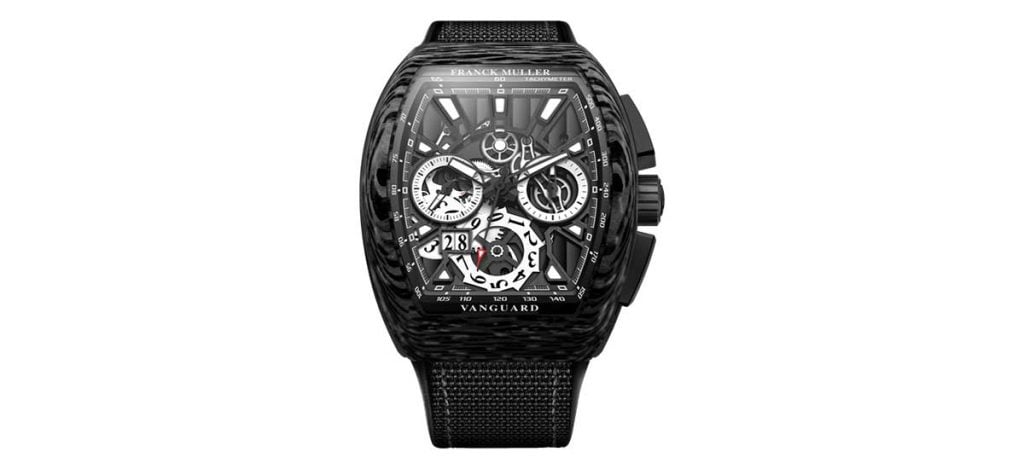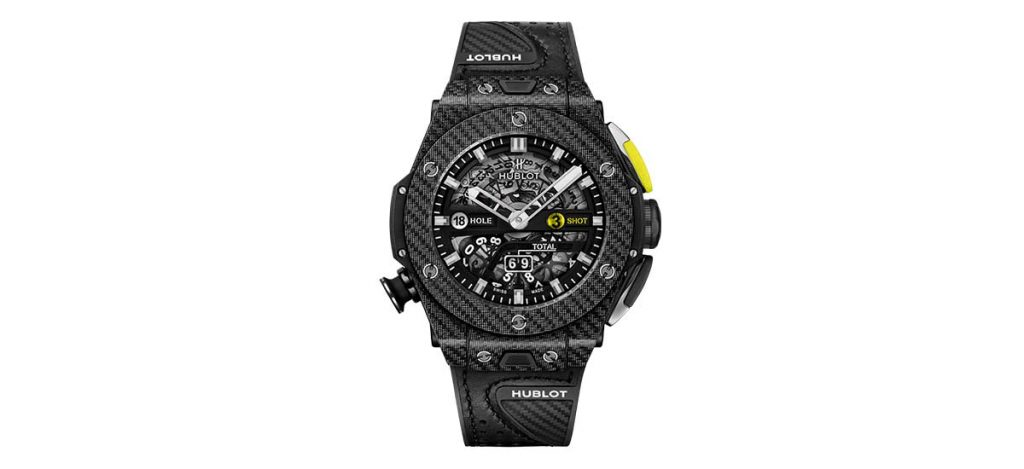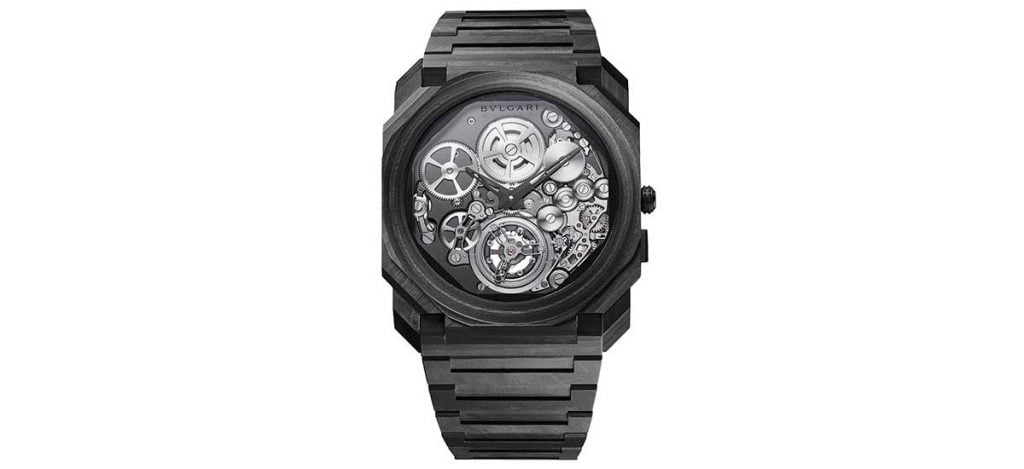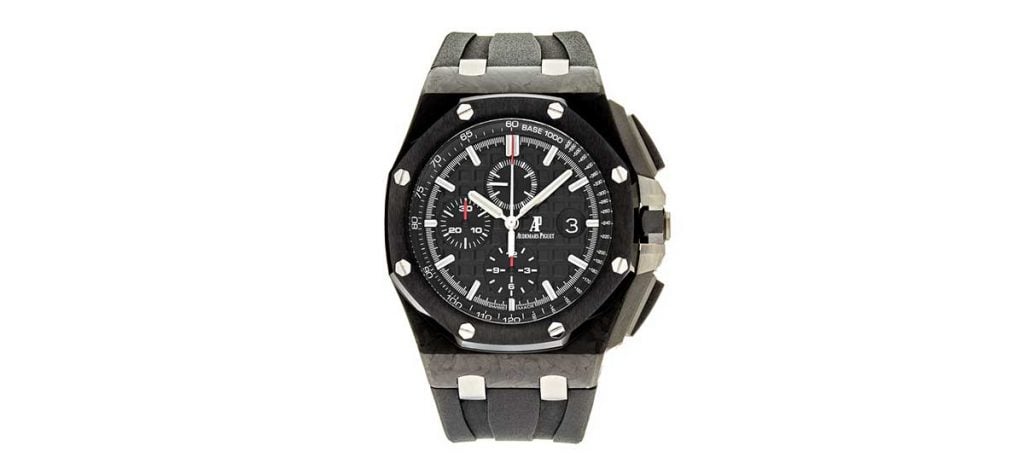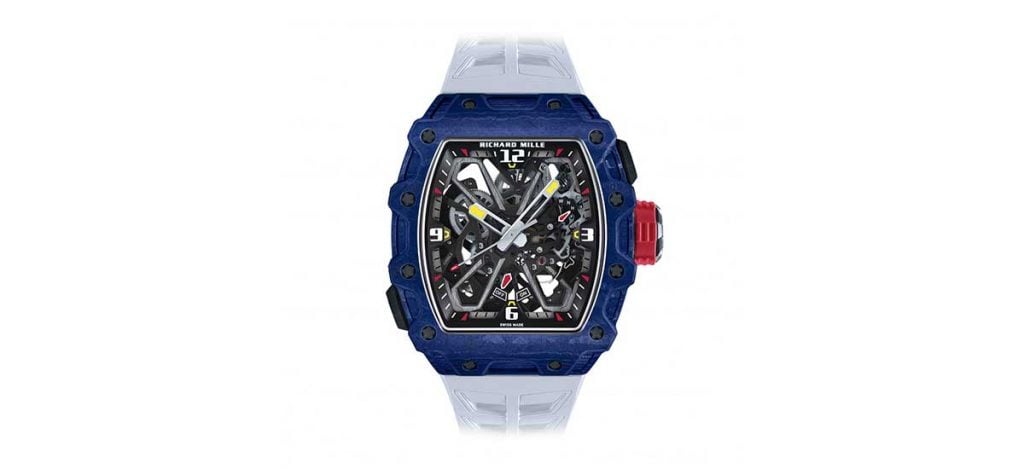
As a teen, a wise and worldly uncle introduced me to an acronym that has stuck with me to this day – K.I.S.S., or Keep It Simple, Stupid. To be clear – he wasn’t calling me stupid but instead sharing a concept that suggests that only an idiot would choose complexity over simplicity when simplicity is available.
This, controversial as it may be, applies to the timepieces we will be looking at here. Bauhaus watches, where form follows function, are some of my personal favorites in the watch world for their minimal effectiveness.
Stripping away unnecessary embellishments, they epitomize the marriage of understated aesthetics and precise functionality, favoring clean dials, uncluttered typography, and geometric shapes to deliver visual harmony that exudes a tangible sense of calm.
Functional Simplicity – The Way of Bauhaus
Born from the iconic German art school in the early 20th century, these timepieces redefine the concept of elegance – conciseness is a founding feature of Bauhaus design and one that you’ll see represented here in all its glory.
Bauhaus principles emerged as a response to the excesses of the ornamental. Rejecting superfluous embellishments, these timepieces embrace the idea that the essential nature of timekeeping must shine through on a watch, unfettered by over-the-top hands or complex cases. Stripped to their core, these timepieces only feature what they must.
Distinguished brands such as NOMOS, Junghans, and even Patek Philippe lead the charge as, over decades, they’ve dedicated man-hours and finances towards creating timepieces that transcend fashion trends and embrace a design philosophy that remains relevant and captivating to this day.
Investing In Minimalism – Should You Buy a Bauhaus Watch?
While the decision ultimately lies in your personal taste, there are compelling reasons why watch aficionados embrace the Bauhaus aesthetic. First and foremost, Bauhaus watches offer a timelessness that transcends fads.
From an investment perspective, Bauhaus watches have proven to be a wise choice. Notable models like the Timex Marlin and Junghans Max Bill have demonstrated their staying power in the market. The Marlin, for instance, can be found at the affordable entry-level price of roughly $200, making it an accessible investment for those starting their collection.
On the other end of the spectrum, luxury brands like Breguet have also embraced the Bauhaus aesthetic, offering options for the discerning investor that reach up to $25,000.
For both the seasoned collector and the budding enthusiast, investing in a Bauhaus watch not only adds a touch of refined elegance to your wrist but also holds the promise of a timepiece that will continue to delight and, in many cases, appreciate in value.
The Best Bauhaus Watches
1. Braun Gents Classic Watch (ref. BN0021)
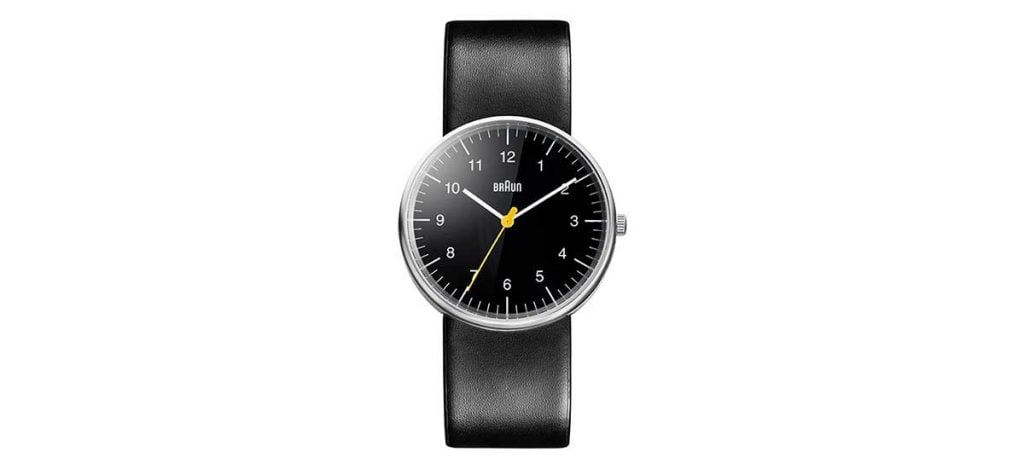
The BN0021 boasts a refined case diameter of 38mm and is exquisitely slim at a mere 8.5mm in depth. Its stainless steel construction speaks of durability and, indeed, of the preferred metal in Bahuas Watch design – simple, strong, and unaffected by notions of grandeur.
The dial, elegantly cloaked in a sleek black hue, adds the finishing touches to a watch that can be worn with any outfit. Embracing contemporary sensibilities, this timepiece features a 22mm-wide stainless steel mesh strap, which is more intricate than a Milanese strap, veering slightly out of Bauhaus bounds.
Nonetheless, it’s a welcome compliment to the modest face, with a push-button deployment clasp that ensures a secure and seamless fit. Equipped with a quartz movement, the Braun Gents Classic guarantees accuracy and ease of use, ideal for those who appreciate a ticker that does the job minus the fuss.
Its water resistance rating of 5ATM adds a touch of versatility, allowing you to take it on the odd adventure without compromising performance. At a meager $175, this a hardly a watch that you can afford to turn down if you’re thinking of jumping on the Bauhaus train – it’s not going to change the world, but it may just change your mind about what makes a watch great.
2. Timex Marlin Hand Wound (ref. TW2R47900ZV)
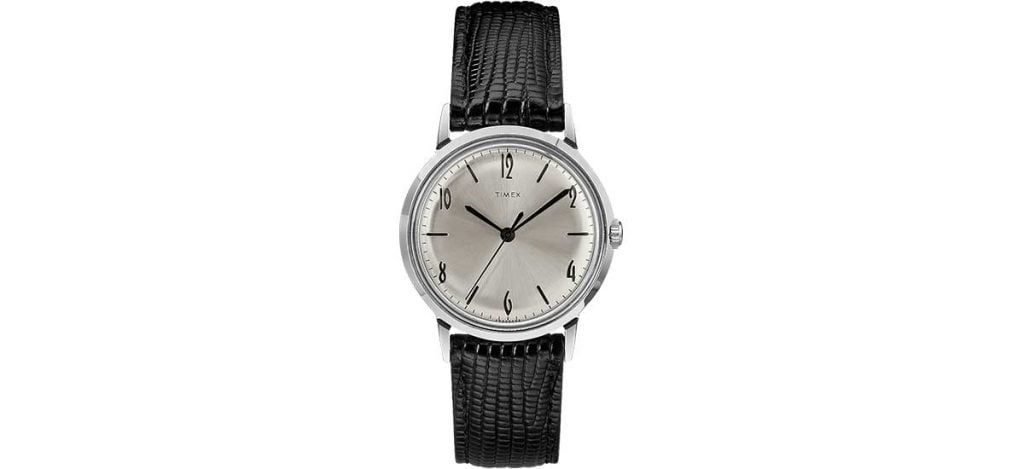
An exquisite reissue of a 1960s masterpiece, the Timex Marlin aptly merges the indulgence of a hand-wound mechanical movement with everlasting design ideals, capturing a palpable sense of gentlemanly grace.
If you’re into the antiquated feel of a watch as opposed to just looks, this is one for you – the hands-on experience of winding the crown until you encounter a subtle resistance demands to be a part of your daily ritual, just as it was likely a part of your grandfather’s.
This vintage sensibility carries through on the perfectly polished 34mm stainless steel case and its face, mostly thanks to the silver-tone dial, adorned with Arabic numerals at even hour numbers. The typeface used for these inspires in one a sense of post-war America, when understated elegance in style was face-forward, and dreams were detailed by cufflinks and tie clips.
The Marlin is a little thicker than many Bauhaus designs. However, at 10mm case height and 18mm strap and lug width, it still almost feels as though it’s not there, and ultimately, it may as well not be – silver and black make a very unassuming pair, and unless someone is paying attention, this watch could easily go unnoticed. If anyone cares to double-check, though, they’ll find a timepiece far more alluring than its sub-$250 price point suggests.
3. Junkers Bauhaus (ref. 9.08.01.05)
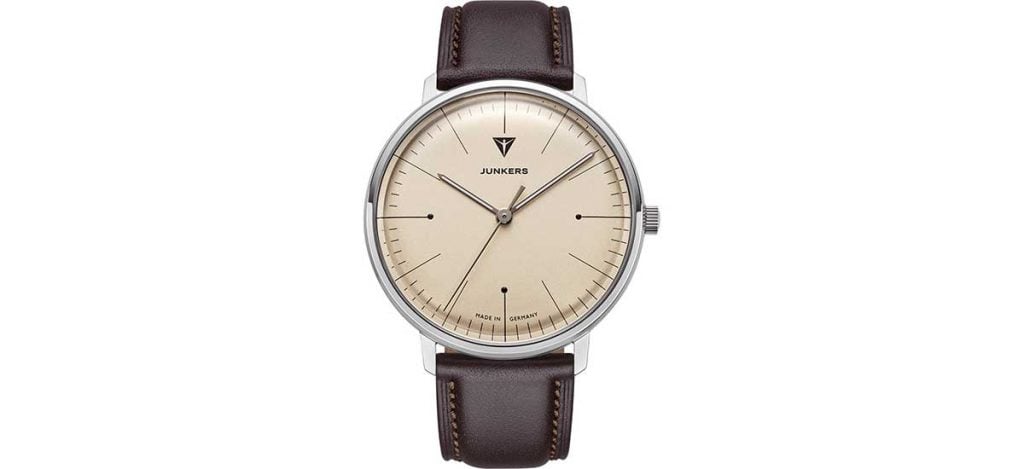
The remarkable synergy between watches and the Bauhaus movement is well embodied in the Junkers Bauhaus, a timepiece that pays homage to a collaboration that emerged in Dessau, which resulted in the construction of a building that, in many ways, broke ground on the Bauhaus movement.
The most attractive thing about this watch is certainly the cream color of its remarkably uncluttered dial, a traditionalist characteristic that contrasts the timepiece’s otherwise clean build. From any angle, the black indices and slender, lume-filled silver hands can be read with complete legibility.
What’s more, three subtle dots mark the ends of the indices at 3, 6, and 9, playing into the unbroken shape of the case and breaking up the line-apportioned dial in a wonderfully understated manner. With its unfussy leather strap, the Junkers Bauhaus watch encapsulates the spirit of innovation and forward-thinking that defined the Bauhaus movement.
The watch comes with an approximate price of $260.
4. Seiko Dolce SACM171
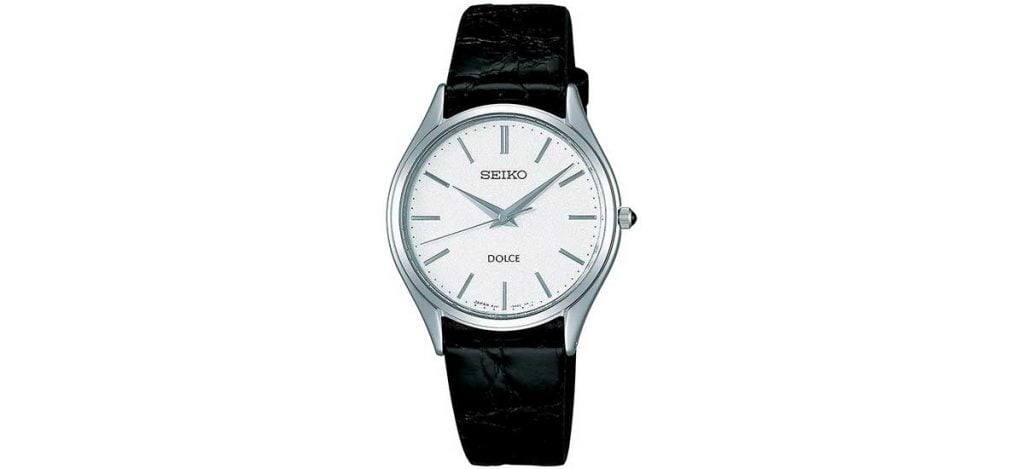
I’m a Seiko man and, thus, can’t help but sing the praises of (most of) Japan’s most famous watchmaker’s pieces. The Seiko Dolce SACM171 is no exception – a trusty timepiece representing Seiko’s well-known mix of reliability and style at a very approachable price.
With its Japanese quartz movement, there’s little to fault here in terms of practicality. Its plain, slightly off-white face and dot-dash indices come across as demure rather than cheap, although a 33.5mm round stainless steel with hard coating does limit it to smaller wrists, which may be an issue for many readers.
While the caiman leather band in black speaks to the Japanese salaryman in all of us, it lacks a certain degree of sophistication that a brown or beige band might afford the watch. That said, it does match nicely with the small black rock that punctuates the crown, which is a quaint, if necessary, addition to a timepiece that is perhaps trying to be more than it is. And it can be yours for around $300.
5. Stowa Antea 1919
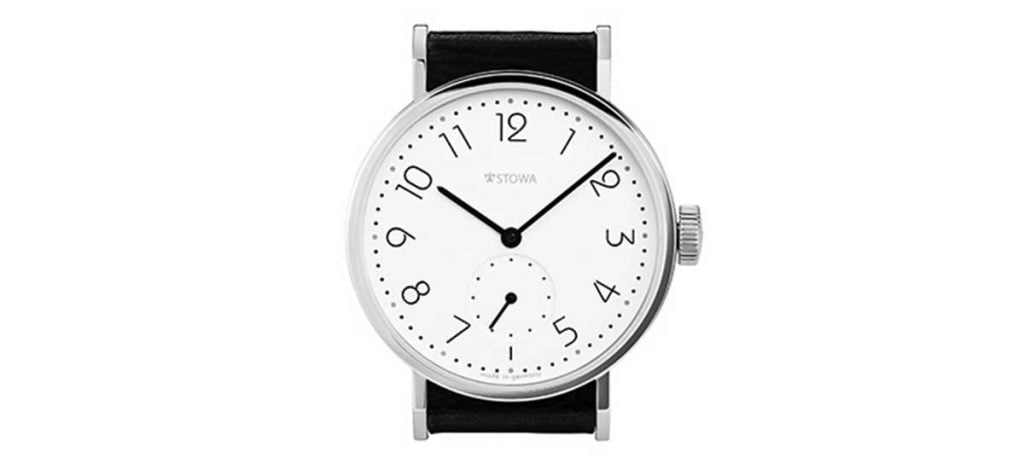
Stowa’s Antea 1919 is, for my money, one of the best watches in its class. A captivating timepiece that commemorates the centenary of the Staatliches Bauhaus (the Bauhaus School). This conventionally Bauhaus watch showcases a clean white dial marked by simple black lines for indices. It’s a lesson in minimalism, but its straightforward face is a lure for more discerning fishies.
Anyone who’s into watches for more than just their time-telling qualities will initially like the Antea for its size (39mm wide and just 8.2mm thick) and very soon come to love its meticulously crafted matte case.
Driven by the hand-wound Sellita SW200 mechanical movement, the Stowa Antea 1919 is a hands-on affair (pun intended). What’s more, blue screws and STOWA engraving can be viewed through the watch’s open caseback, another hallmark of the watch’s status that makes its $900 price tag an almost mind-blowing proposition.
For those of you who don’t have the patience or discipline to hand-wind a watch every day, there’s an automatic option available as well (which is $150 cheaper). Do you need more reasons to buy this thing?
6. Unimatic Modello Due U2S-M
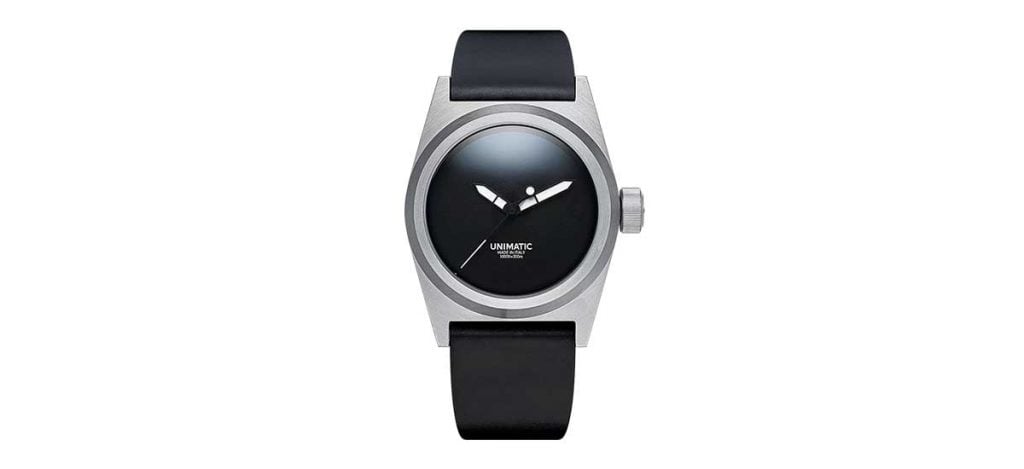
Restraint. Elegance. Sportiness. Boldness. Somehow the Unimatic Modello Due U2S-M encapsulates all of these things. Take one look at the Modello Due, and you’ll feel like you’re seeing the blueprint for a timepiece yet to be released. Ladder phantom hands are filled with lume and do a circular dance around a pitch-black dial.
There are no indices. There’s no date window. There are just 3 lines of white text that denote the brand, country of manufacture, and the U2S-M’s superpower – 300m water resistance. Now, I don’t know who would use a watch like this for diving with, but whoever you are, I believe one thing – you’re a stylish bugger, and for that, I salute you.
Some people will look at this 38.5mm wonder and only see what it lacks, but more insightful individuals will know this Unimatic for what it is – a Bauhaus wonder of the highest order, both aesthetically and technically. With a power reserve of 38 hours and anti-magnetic properties exceeding 4800 A/m, the Unimatic Modello Due U2S-M is built to endure.
It comes with a black two-piece calf leather strap and an additional black two-piece seatbelt strap, both equipped with stainless steel brushed hardware signed by UNIMATIC. It’s not a cheap watch, but it’s still utterly affordable at $845. Buy fast, though – only 500 of these have been made!
7. Laco Heidelberg (ref. 862094)
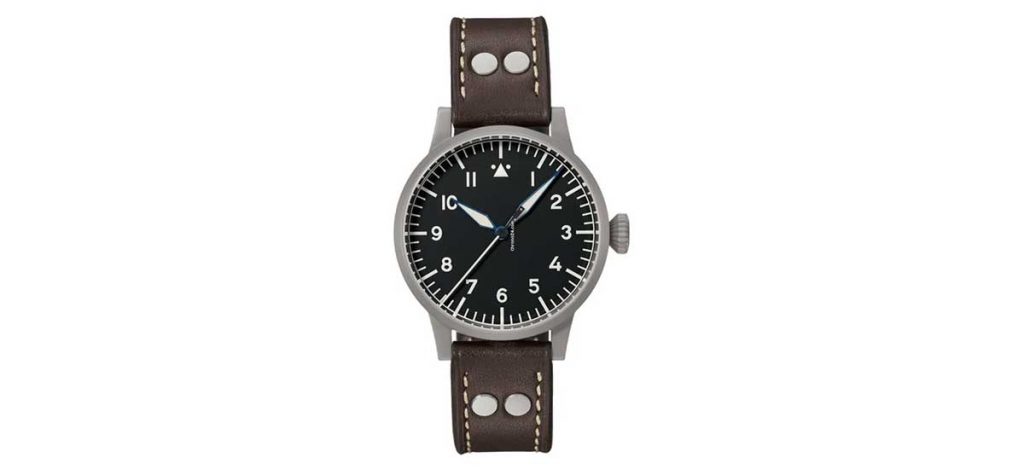
If you happen to exist at the stylistic intersection of pilot’s watches and Bauhaus, then start salivating now. The Laco Heidelberg is an authentic reconstruction of revered observation watches from the 1940s, known as B-Uhr or Beobachtungsuhren in German.
These tickers were crafted to meet the stringent requirements of the former German Ministry for Aviation, with only a select few companies entrusted with their production. As a nod to their historical significance, the Laco Heidelberg boasts a substantial 55mm diameter, which serves as a timekeeping instrument and a navigation tool (if you have the requisite skills).
For most of us, though, this is just a very cool timepiece. A sandblasted stainless steel case features an ‘FL23883′ engraving, while the domed and anti-reflective Sapphire crystal ensures optimal clarity both in the sky and on land.
The dial, adorned with Superluminova C3, showcases legible numbers and figures, while the thermally blued steel hands, also filled with Superluminova, provide great legibility.
With all that being said, the most noticeable aspect of the Laco Heidelberg is its brown calf leather strap, which is topped by two large rivets on either side, perfectly complementing its vintage heritage. Plus, its price tag of $1,130 is good for the amount of watch you get.
8. Junghans Max Bill Automatic (ref. 027/4007.02)
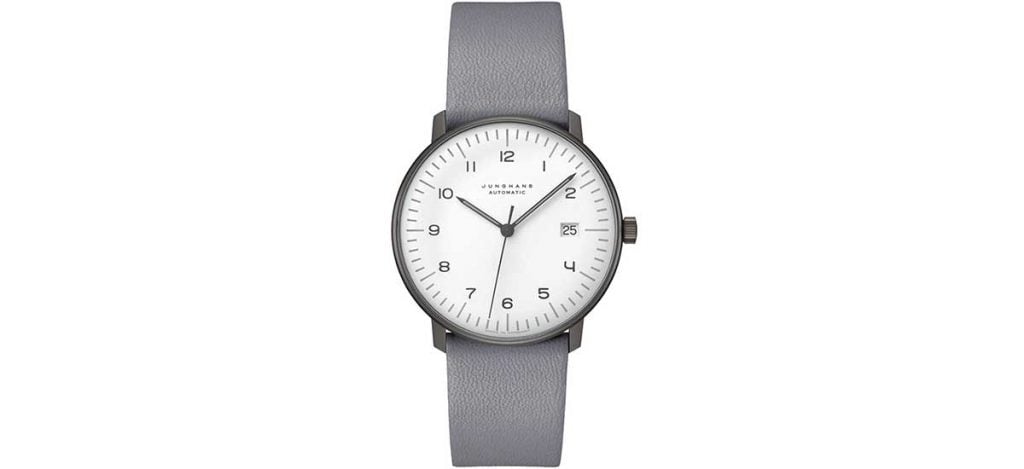
The Junghans Max Bill Automatic (ref. 027/4007.02) is arguably the most well-known contemporary Bauhaus watch. This masterpiece embodies the essence of minimalism and modernity, as envisioned by the iconic architect and designer Max Bill.
Actuated by the wearer’s energy, the self-winding movement calibre J800.1 powers the watch and grants it up to 42 hours of uninterrupted timekeeping. The stainless steel anthracite matt PVD-coated case is home to a white face with black hands that point to any combination of the 1 to 12 sans serif numerals around the dial.
What makes the Max Bill even more impressive is that it has a date window that could easily go unnoticed, despite its paucity of detail. This is the power of Bauhaus design – merging necessities with simplicity to generate a distillation of form.
As a cherry on top, a calf leather strap with an anthracite matt PVD-coated buckle adds a cosmopolitan touch to the Max Bill. If you’re looking for simple and suave, at around $1,200, this is the full package.
9. anOrdain Model 1 Medium Teal
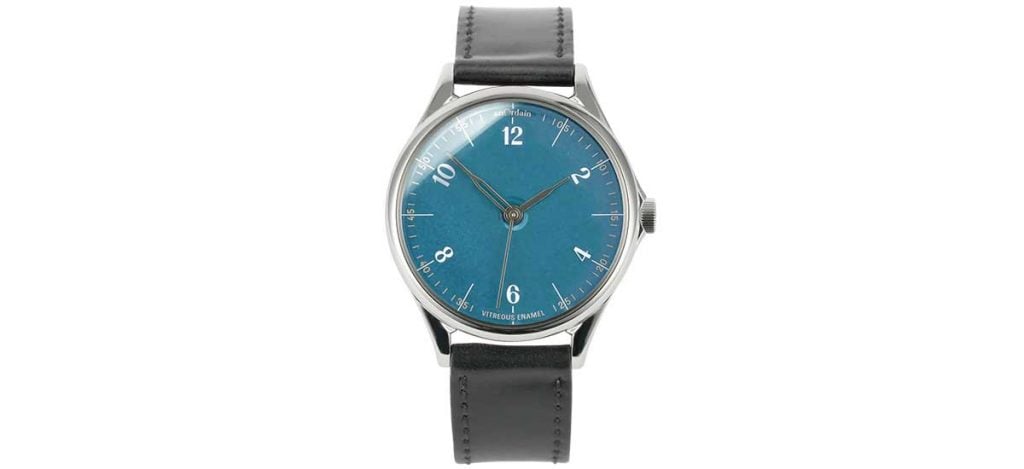
It’s not often that you come across a decent timepiece from Scotland. The haggis-eating, whiskey-drinking Scots are little-known for their watchmaking skills. Nonetheless, the anOrdain Model 1 Medium Teal watch hails from Glasgow, where the show-stealing vitreous enamel dial and exquisitely heat-treated hands are meticulously crafted by skilled enamelers, each of whom dedicates a minimum of 12 hours to shape the blank into a captivating facade.
It’s not often that a colored dial makes such a positive impression on a viewer, particularly in the $2000 range; a considerable amount of financial risk is involved in dedicating the manpower and resources required to perfect something that has no bearing on how well the watch works.
However, held within its 38mm polished steel case, the Eurasian teal face is magnificent. Instilled within the watch’s design is an easter egg – the numerals borrow typographic influence from cartographic maps of the highlands as a tip-of-the-hat to anOrdain’s Scottish heritage. For those concerned about precision, fret not.
Beneath the sapphire glass, enhanced with 6 layers of anti-reflective coating, lies a heart of your choice – Sellita’s SW210 or a La Joux-Perret’s G100 movement, each offering exceptional timing and reliability. This feels like far more watch than its price suggests. Indeed, it’s not only a timer but an ode to Scotland and the unique craftsmen who live there.
The watch comes with a retail price of around $2,300.
10. NOMOS Orion 38 White (ref. 386)
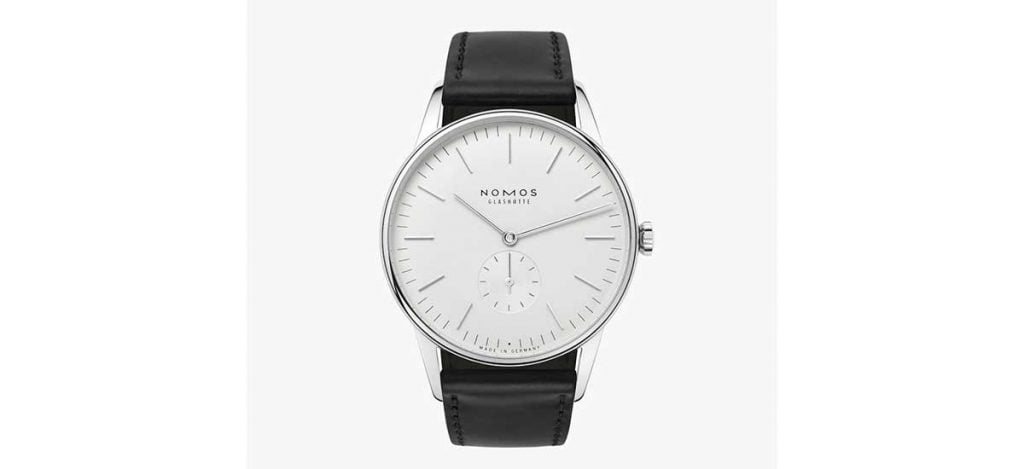
NOMOS has always struck me as a singular watchmaker because it’s somehow the most talked about, and the least talked about manufacturer at the same time. Their Orion 38 White watch should be in every collection and, failing that, on every watch wishlist out there.
It’s a brilliant representation of the Bauhaus design ethos, with a white dial, silver indices, and uncomplicated hands. What’s more, despite their inclusion of a sub-dial for the second hand, this watch remains simple to the extreme.
The hand-wound calibre Alpha controls everything, with its mesmerizing 2.3mm-thick movement visible through the sapphire crystal glass back, while the stainless steel case, with its graceful lugs and flowing lines, enhances the watch’s slender profile, leaving a lasting impression.
The devil is in the details here – something about the curves of the lugs, coupled with the watch’s 8.9mm thickness, causes the Orion 38 to almost merge into the wrist instead of sitting on it. The designers among us will know better what’s going on here.
To my untrained eye, it’s a simple matter of perfect proportions bolstered by subtle angularity that makes this timepiece stand out in a crowd. You can get the Orion 38 for a retail price of $2,560.
11. Oris Artelier Art Blakey Limited Edition (ref. 01 733 7762 4081-Set)
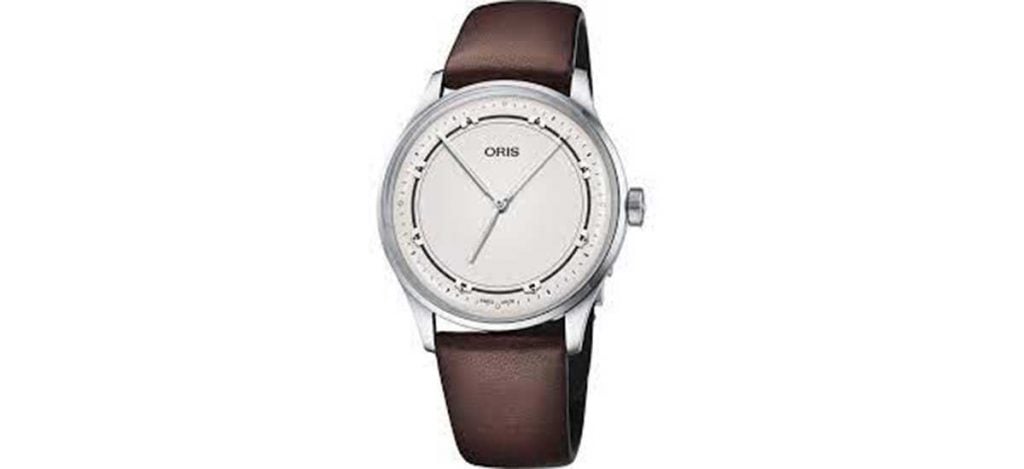
For the jazz aficionados among us, the rhythmic harmony and 1000-piece-only exclusivity of the Oris Artelier Art Blakey Limited Edition will make the decision to purchase an easy one. This piece is a little bit more playful – more boisterous – than perhaps any other on this list, and for good reason.
Named after the inimitable hard-bop drum figurehead, Oris’s Art Blakey model at once delivers artistic flair and restrained design. It’s a testament to the intricate, read-between-the-lines playing style of its namesake, embodying a type of detailed elegance if you will, that few other watches can claim.
Within a stainless steel case measuring 38mm lies the Oris 733 automatic movement, which underpins a silver dial and black hands filled with a bright blue lume. The dial is defined by somewhat unusual markers that run along a black ring that lies inside the small indices to create a pattern resembling a drum head.
Although this is a nice idea, it does make reading the time a bit tricky as these markers don’t align with any specific time indices. If you can get past that detail, however, there’s so much to love about the Art Blakey limited edition, least of all its patterned caseback and wooden case.
The watch comes with a retail price of $2,300.
12. Longines Classic Heritage Sector Dial (ref. L2.828.4.73.0)
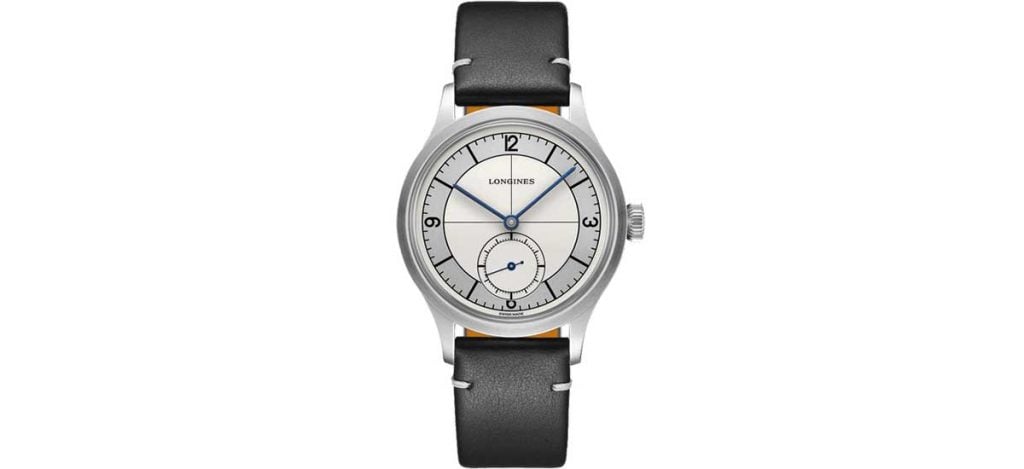
The Heritage Sector Dial is about two things, really – acknowledging historic designs and providing technical precision at a competitive price point. It pays homage to Longines’ legacy of innovation and craftsmanship.
To the former point, the dial speaks most loudly. It’s not as minimal as most Bauhaus designs are (and should be), but it’s far from cluttered. There are black indices and numerals, a seconds sub-dial, and fine crosshairs that bring it all together at the center of the watch.
Thanks to metallic blue hands and a thick silver band that encircles the edge of the dial, there’s a definite sense of traditionalism present on the L2.828.4.73.0. Hidden from view is the automatic Caliber L893 movement, which beats at 25,200 beats per hour and has a power reserve of 72 hours.
Although this Longines may seem simple, its dependability is unquestionable. The only qualm you might have is that it’s not a definitively Bauhaus watch. It’s a Bauhaus designed by someone who loves art deco. Art Deco disguised as Bauhaus, let’s say. Whatever it is, it’s lovely. And you can get it for around $2,000.
13. Omega De Ville Trésor (ref. 435.13.40.21.02.001)
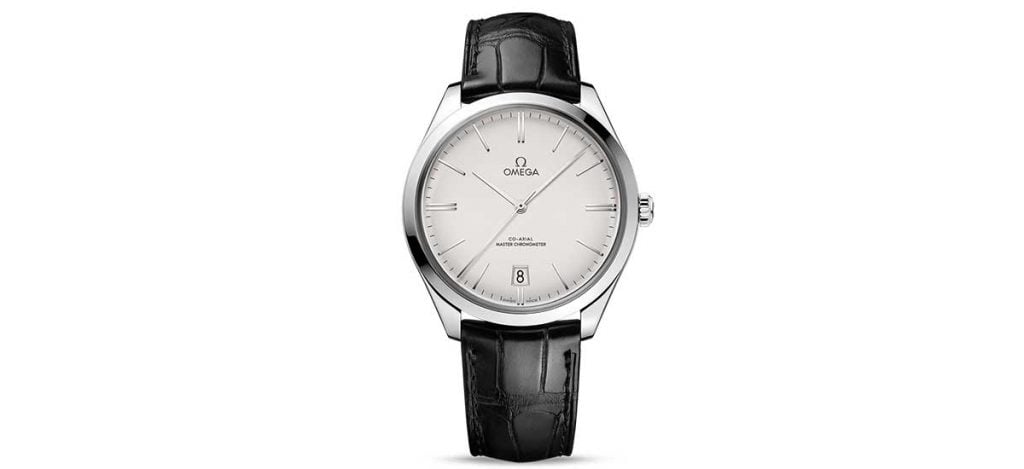
First launched in 1949, Omega’s Tresor line has a reputation for being the brand’s more pared-back range. The De Ville Trésor is a watch that embodies this ideal in a cosmopolitan manner, with 18k white gold indexes and a painstakingly polished silver case that speaks to the modestly elegant among us.
This model boasts a 40mm stainless steel case, beautifully complemented by a black leather strap. The domed opaline silvery dial showcases the white gold hands and indexes, along with a date window positioned at 6 o’clock.
There’s a sharpness to this watch, despite its simplicity. Maybe it’s because of how thin the indices and hands are. The skeptic in me believes that Omega did this to skimp on costs, but the romantic knows that, complemented by the fine-type lettering above the date window, this spindled aesthetic adds an edge to the De Ville, which cuts through its plainness.
The remarkable OMEGA Co-Axial Master Chronometer Calibre 8910, which meets the highest standards of precision, chronometric performance, and magnetic resistance in the industry, drives this watch flawlessly. In every way, it’s an impressive timepiece.
The watch comes with a retail price of $6,700.
14. Glashütte Original Sixties Blue (ref. 1-39-52-06-02-04)
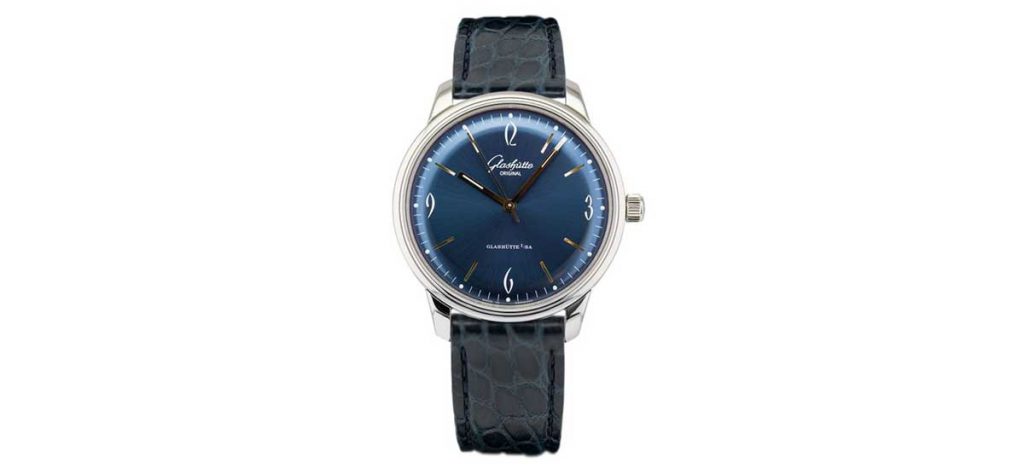
The more detail-oriented among you will notice a subtle similarity between the Glashütte Original Sixties Blue and the Timex Marlin mentioned earlier – the two share a very similar retro numeral typeface. I would say that the Original Sixties Blue watch has accomplished this with more class (being much more expensive), but the effect is the same – old meets new, and neither compromises.
The elements that prevail on this Glashütte piece do so with aplomb – an ultra-slim stainless steel case, sunray-finished blue dial, and slightly curved rhodium-plated hands make for a very refined watch. If you know what to look for, these characteristics will transport you to a bygone era, a feat alone worth the $7500 you’ll pay to experience it.
On the other hand, if you’re not inspired by or well-versed in the vintage culture, particularly that of the 1960s, this is simply a very fine watch. By no means should the name and influence behind this Glashütte preclude you from wearing it if you’re not into ‘watches from the past’. Its honest nature and gloriously subtle finish are enough to make anyone fall in love.
15. Rolex Oyster Perpetual 36 (ref. 126000-0002)
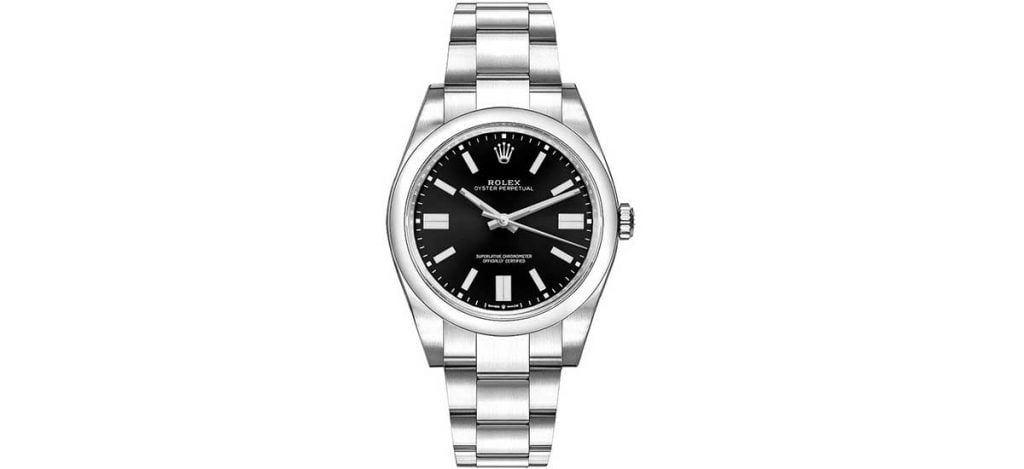
Rolex’s Oyster Perpetual 36 needs no introduction. It’s the Swiss megalith’s most simple watch and, for that reason, arguably its most beloved. It encapsulates everything that makes Rolex great – unsung details, unparalleled craftsmanship, and unbeatable accuracy (no offense, Grand Seiko).
The sunray finish on the dial is, by now, a celebrity in its own right. Achieved through meticulous brushing techniques, it creates a captivating interplay of light for which this model has come to be known. With each movement of the wrist, a subtle glow emanates from the grooves, creating a primarily attractive effect.
Crafted from Oystersteel, the watch case exhibits exceptional resistance to corrosion and maintains its pristine appearance even in the harshest conditions. The iconic three-link Oyster bracelet merges with the case in a completely unassuming manner, as though the watch wasn’t made by trial and error but was perfectly formed like this.
It epitomizes Bauhaus ideals in a way that I don’t think the designers ever even intended. The happiest of accidents, one might say. Sure, the waiting list is long but patience, in this case, will be duly rewarded. The watch has a retail price of approximately $8,000, but you can expect to pay up to $20,000 on the secondary market, depending on the availability and dial color you want.
16. H. Moser & Cie. Pioneer Centre Seconds (ref. 3200-1200)
There’s an interplay between hands and dial, which makes the H. Moser & Cie. Pioneer Centre Seconds a curiously bold timepiece. Is it genre-defining? I think not. It’s a watch that grants its wearer a sense of individuality in a world populated by standard pieces. Yes, it’s got a steel case, and yes, it’s dateless and rather conventional in shape.
Counteracting these commonalities, though, are the midnight blue fumé dial and the skeleton-feuille hands, which are decidedly uncommon. What’s more, there’s a rubber strap on the 3200-1200, an inclusion that made me go “What?” the first time I recognized it, as the sporty flavor of the strap strongly contrasts the dinner-party nature of the watch itself. This one is full of surprises.
Below it all is the self-winding HMC 200 calibre movement, with an automatic bi-directional pawl winding system and interchangeable Moser escapement that contribute to its exceptional performance. Accuracy is a given with the original Straumann Hairspring and hacking seconds feature.
Ultimately, this timepiece is a ticking contradiction. It’s sporty yet posh. It’s simple yet intriguing. I don’t know how it all works, but somehow, it does. You can find this beautiful timepiece for around $13,000.
17. Vacheron Constantin Patrimony (ref. 81180/000G-9117)
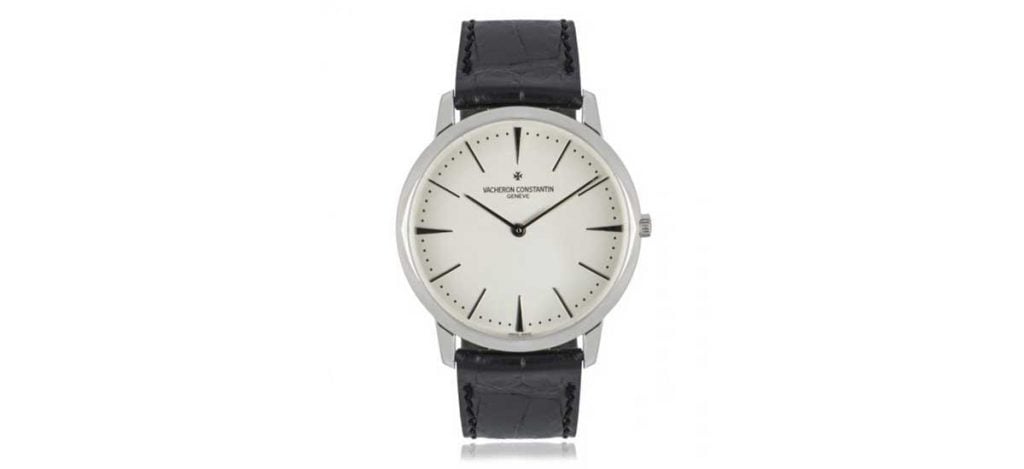
Vacheron Constantin has a reputation for making unassuming watches that are nonetheless as high-end as can be. The Patrimony upholds this reputation, being a masterful example of ‘simple things done exceptionally well’.
Crafted from 18K white gold, its timeless design and relentless calibre 1400 movement afford it every luxury while enabling it to fly under the radar, just as a true Bauhaus piece should. One would never guess, unless they were in the know, that this watch is worth $20,000.
Inspired by the classic watches of the 1950s, the hour markers and hands gracefully follow the curvature of the dial, showcasing meticulous attention to detail and creating an effect that seems to bend space, making illegibility a thing of no concern.
My favorite thing about the Partimony, aside from how it makes me feel deep inside, is its thickness, which is a paltry 6.8mm.
On the wrist, it’s almost as though the watch isn’t there at all. If you’re into gold for gold’s sake, this might not be the big boy that you’ll buy, but if, like many, you prefer the subtle approach of white gold, in its unassuming majesty, then the Patrimony is likely one of your grail watches.
18. Grand Seiko SBGW295
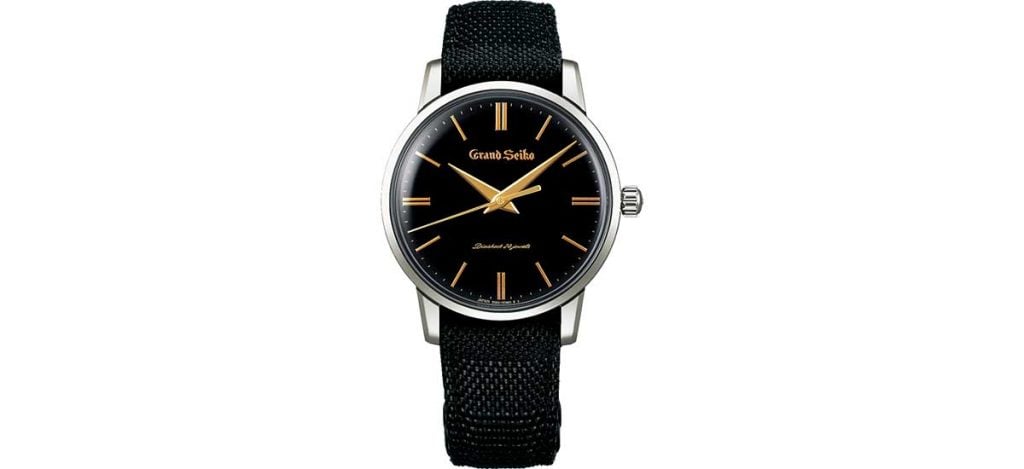
Behold the Grand Seiko SBGW295, a timepiece that pays homage to the first-ever Grand Seiko watch while showcasing the finest traditional Japanese craftsmanship. This manual-wound marvel is probably more of a collector’s piece than a first buy.
The dial’s black ‘urushi’ lacquer, derived from rare domestic Japanese lacquer, is a work of art in and of itself, embellished with pure gold indices and text which brings the depths of the dark face to life.
Its dual-curved sapphire glass adds depth and allure to a bare facade, while the 9S64 movement beneath it guarantees +5 to -3 seconds a day accuracy. The watch rests on a ‘yoroiori’ strap, a woven blend of calf leather and fabric using a traditional Japanese technique once employed in samurai armor.
To me, the only ostensible thing that piques intrigue is the watch’s combination of gold details against its brilliant titanium case.
That’s the joy of the SBGW295 – Grand Seiko knows when to push a timepiece to its visual and technical limits but, more importantly, when to yield to the design’s natural conclusion. The Bauhaus founders would appreciate that, I’m sure. You can purchase the Grand Seiko SBGW295 for $13,800 here.
19. Breguet Classique (ref. 5140BB/12/9W6)
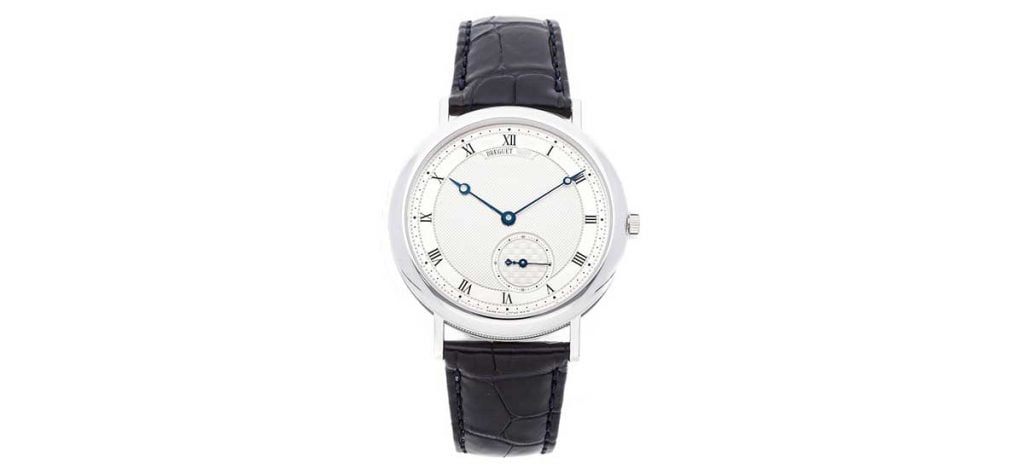
Another white gold contender for the luxury Bauhaus crown, Breguet’s Classique is fancier than other watches here but still restrained enough to make the list. This self-winding watch has an offset subdial for seconds and some remarkable advancements in its movement – a balance spring and lever made from silicon ensure precision timekeeping to a T.
What stands out about the Classique is its silvered dial, carefully hand-engraved and utterly flawless in its execution. Edge-hugging Roman numerals and a relative absence of text bolster the textured face’s purity and time-telling abilities.
Of course, Breguet’s signature hands are on full display, colored a striking blue to pop off the dial. Look closer at the sub-dial, and you’ll notice tiny Arabic numerals at the quarterly positions, a detail that says so much about the craftsmanship behind the Classique.
As far as Bauhaus sensibilities go, this feels like an indulgence, but honestly, it’s a watch at the top of its game, so who cares? This beautiful Breguet Classique can be yours for $21,000.
20. Patek Philippe Calatrava (ref. 5196G-001)
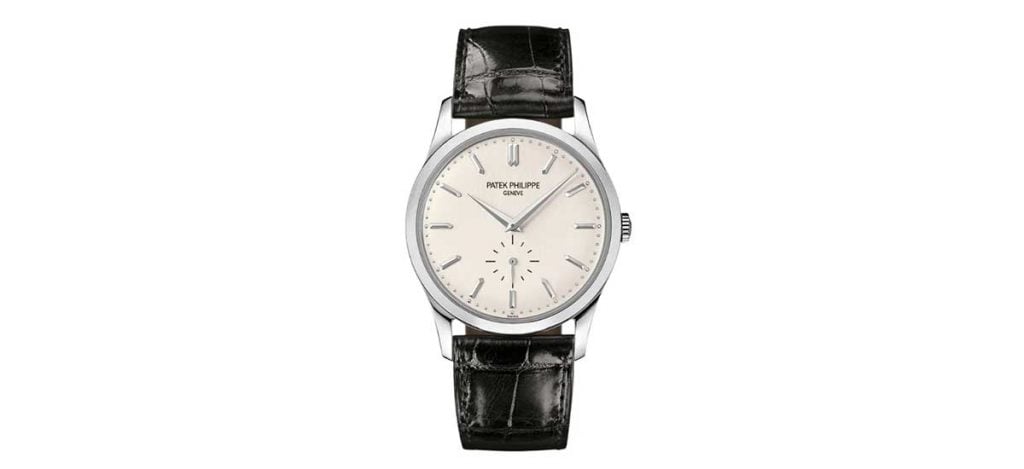
Patek’s Calatrava is arguably the definition of simplicity among luxury watches. The 18kt white gold case, with its round shape and slim profile, measures 37mm in diameter and 8mm in thickness, making it as easy on the wrist as it is on the eye.
Almost monotone, the white gold case wraps around a silver-grey dial and silver Dauphine hands and index markers. Seconds are denoted on a small, borderless sub-dial, the black line indices of which form a sort of ‘shining star’ pattern that I think is the centerpiece of this ticker.
Images of industrial pursuits come to mind when looking at the Calatrava, minus the grease and grinding accompanying such depictions. To that point, Patek Philippe’s Calibre 215 PS engine lies at the core of the watch, offering a power reserve of 44 hours and a smooth, unaffected movement that will likely outlive your grandchildren.
If you’ve ever wondered why even the starkest Pateks demand a high premium, the Calatrava might offer an answer – it takes a great deal of effort to render the complex down to its most distilled form, which Patek has accomplished here without vanity or falsehood. The Calatrava comes with an approximate price of $25,000.
Keep It Simple
The world of Bauhaus-inspired watches is a true testament to the enduring influence of minimalist design and functional aesthetics. Affordable options offer a taste of timeless elegance without breaking the bank, while more luxurious timepieces embody the highest levels of understated mastery.
These timepieces captivate with their clean dials, harmonious proportions, and meticulous attention to detail. They pay homage to the Bauhaus movement’s philosophy of form following function, resulting in watches that not only tell time but also make a stylish statement on the wrist.


